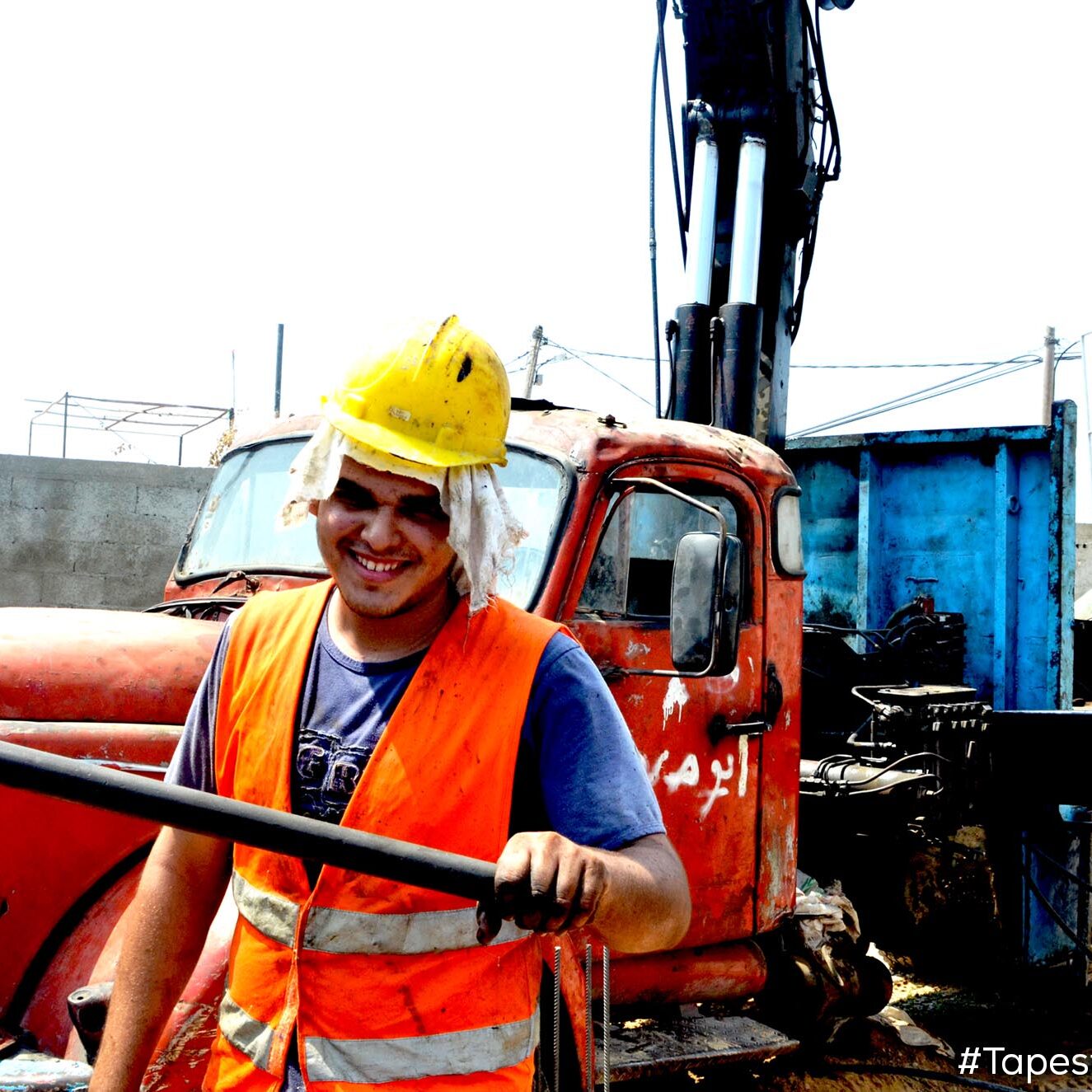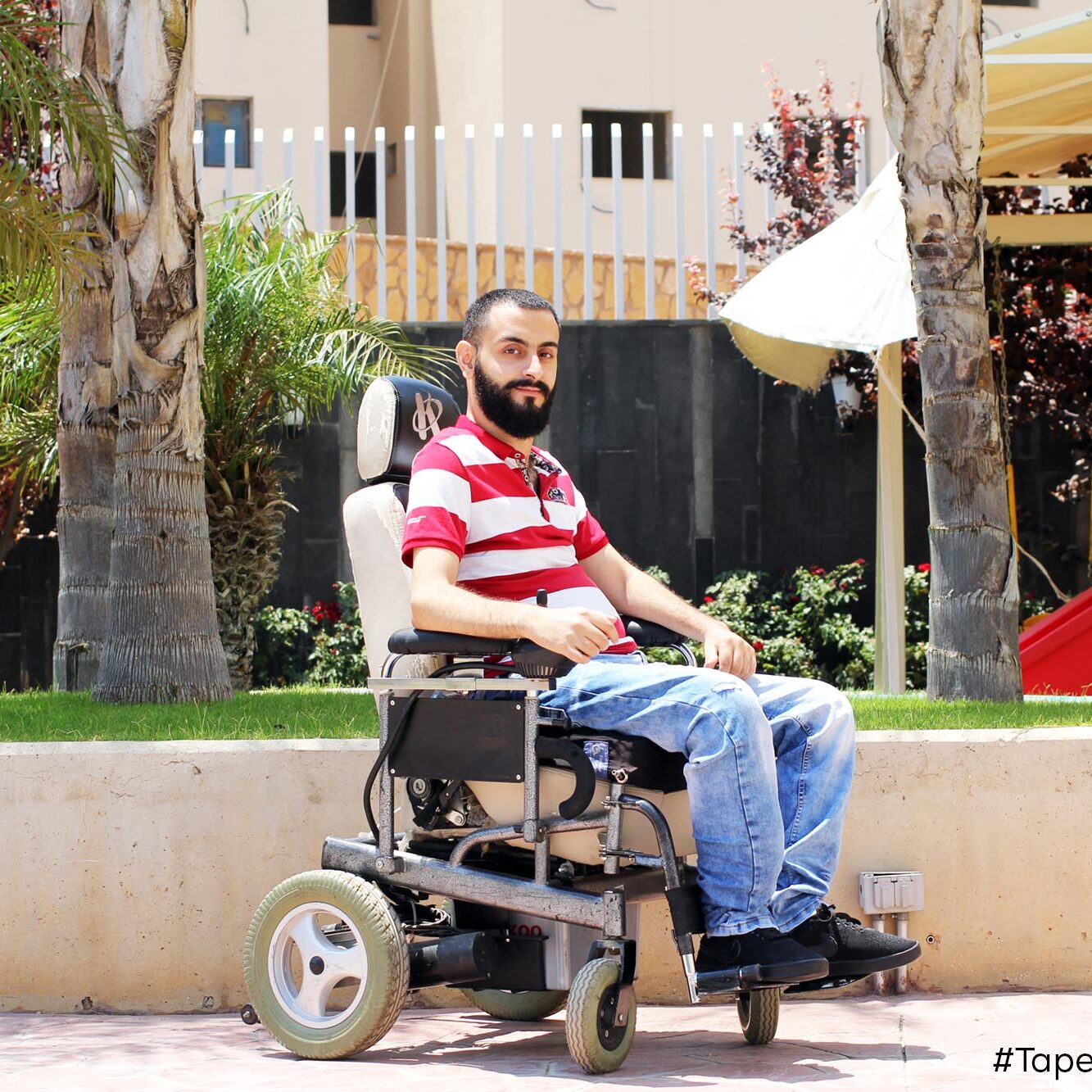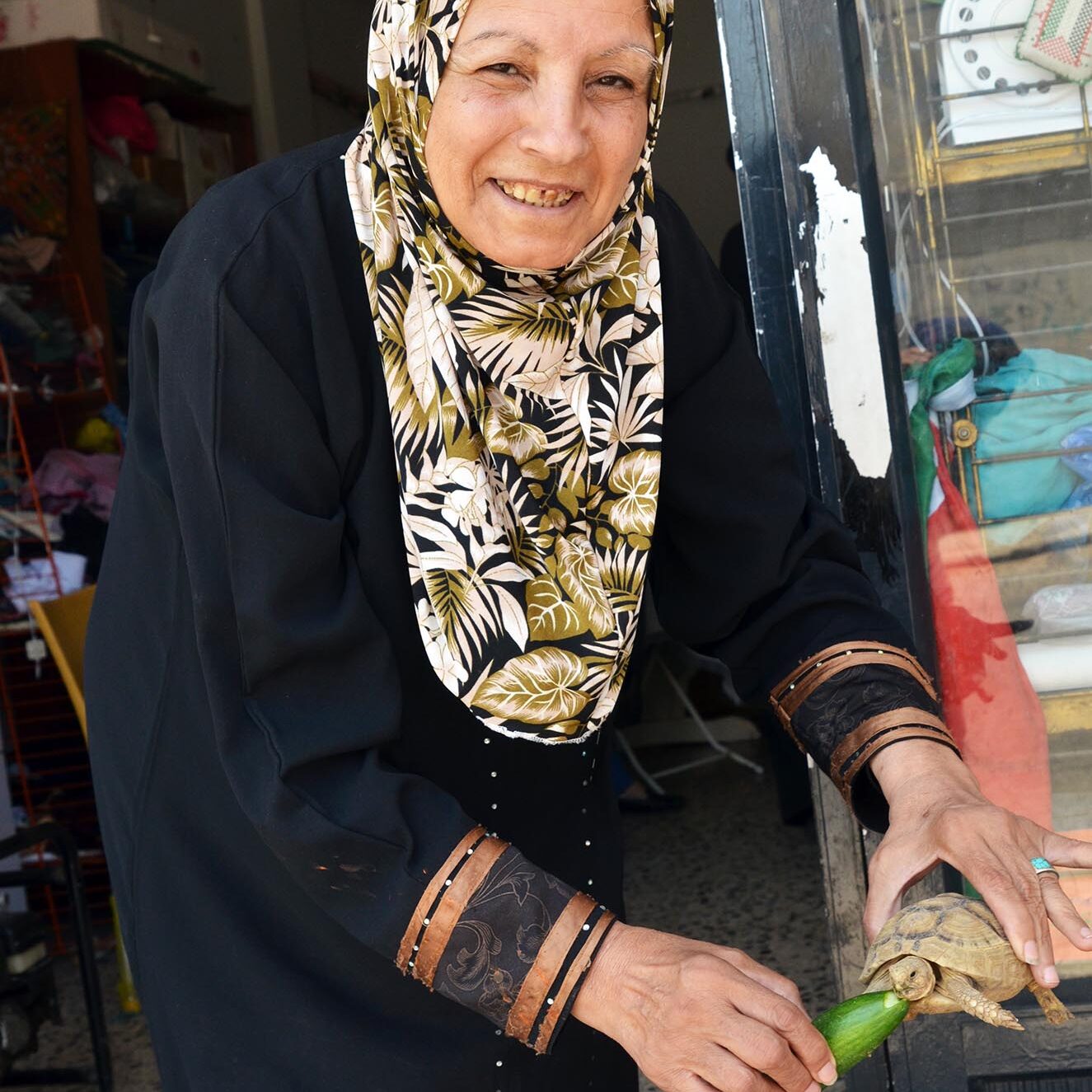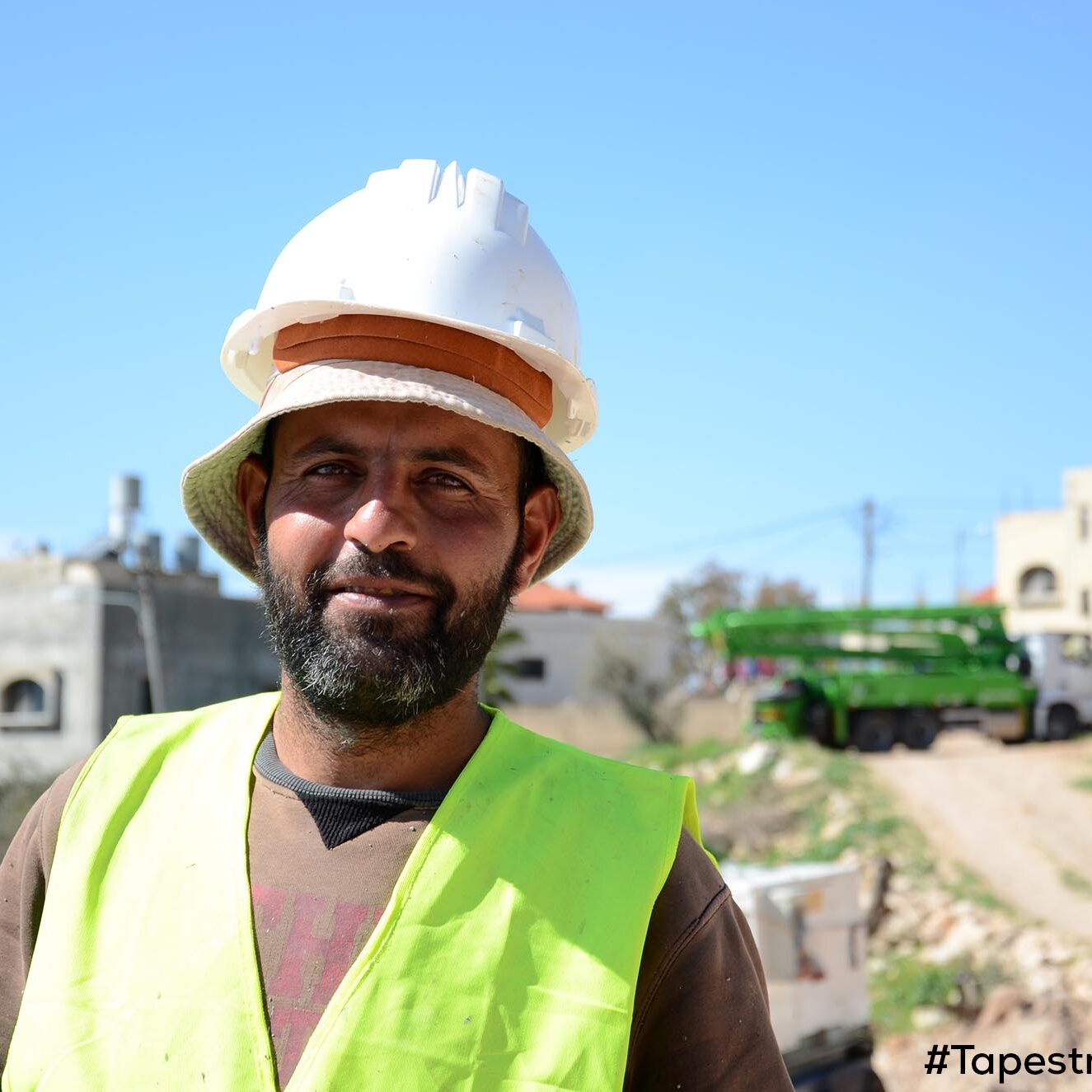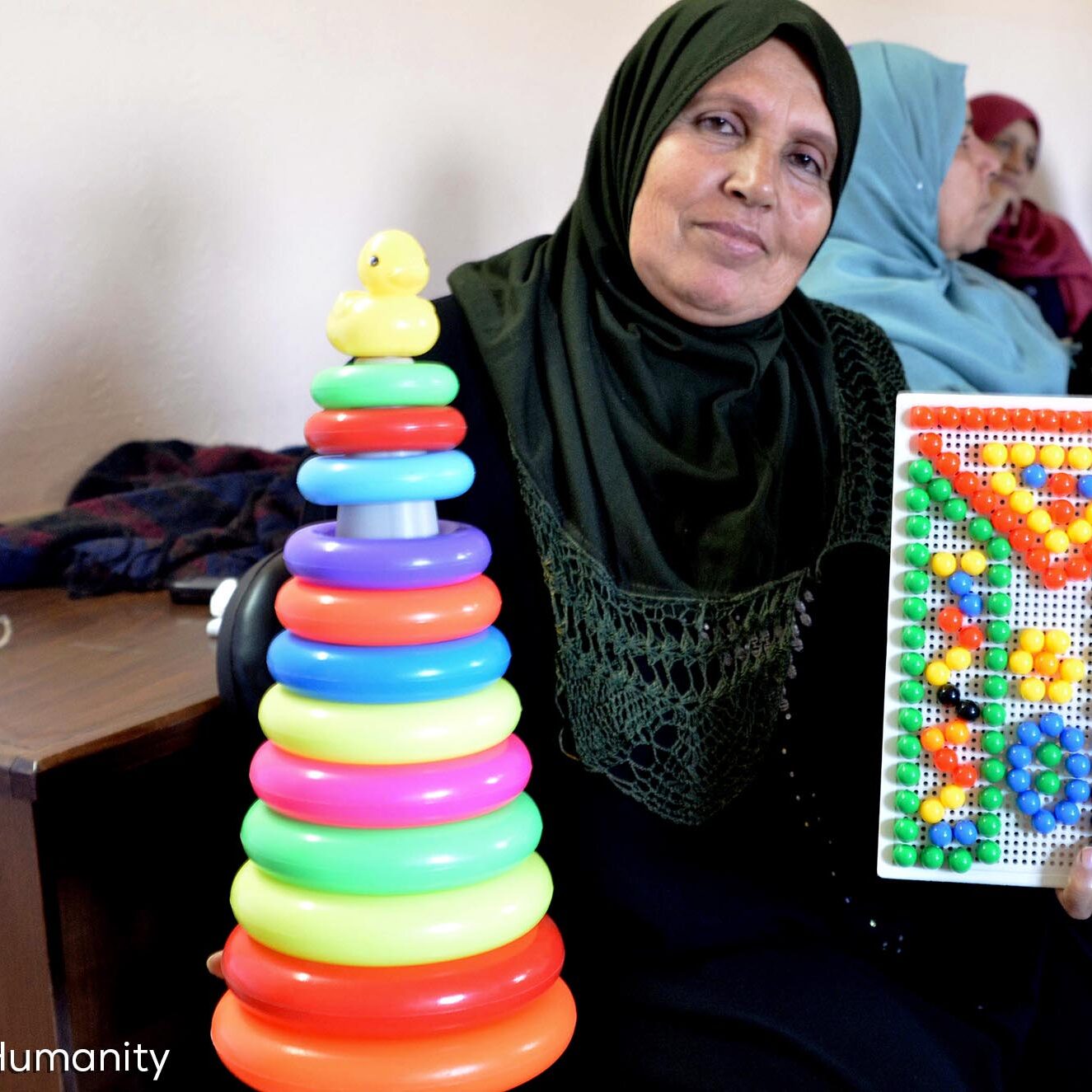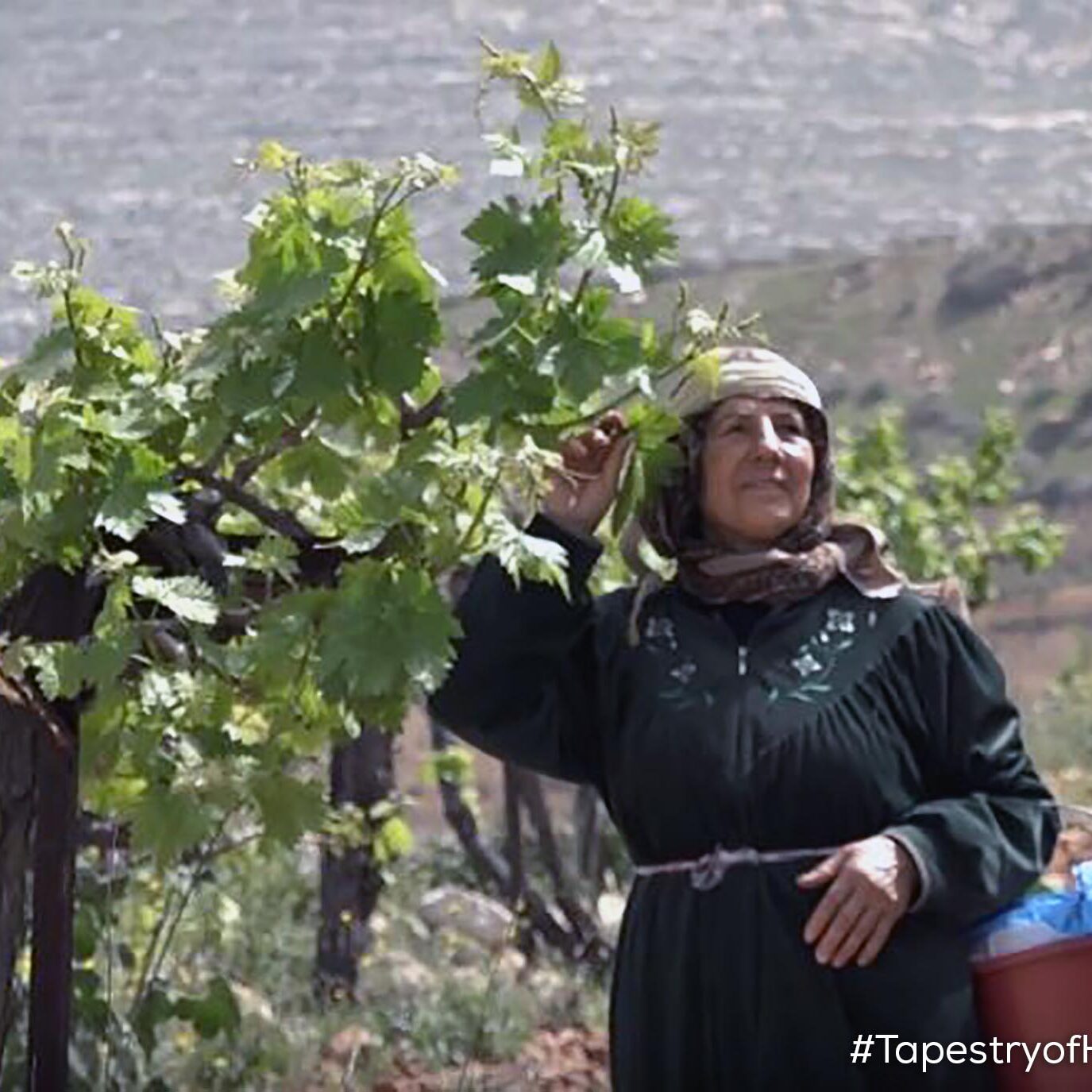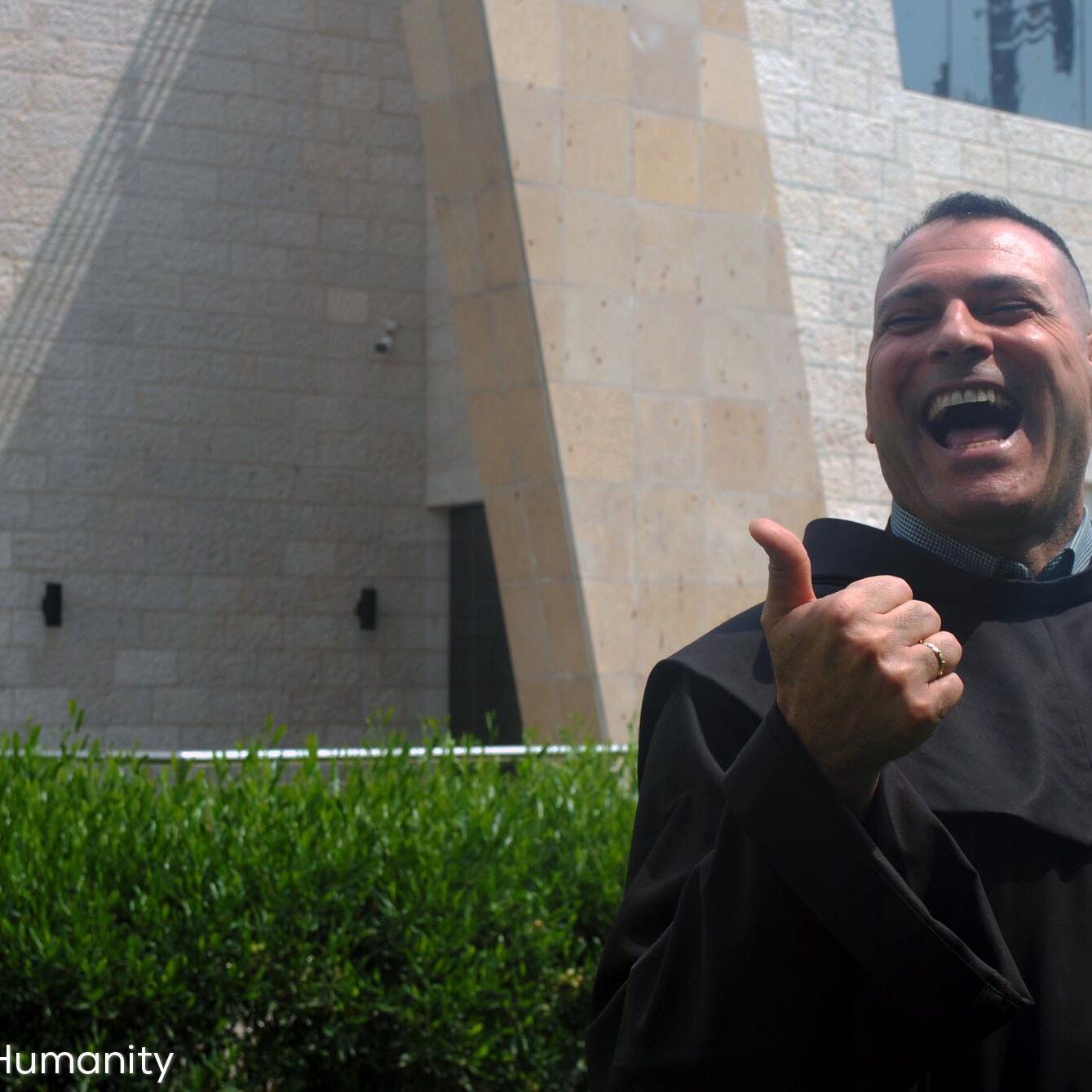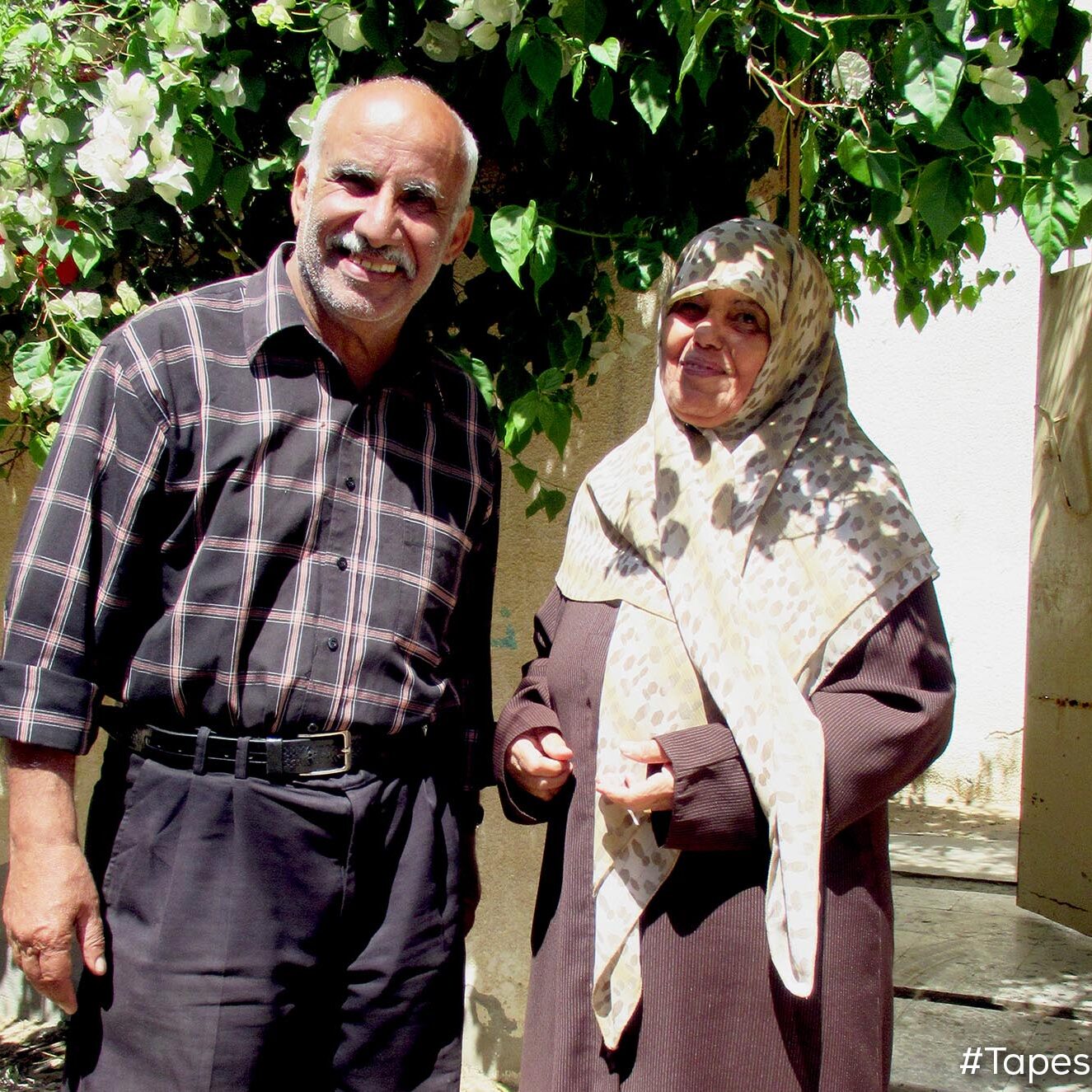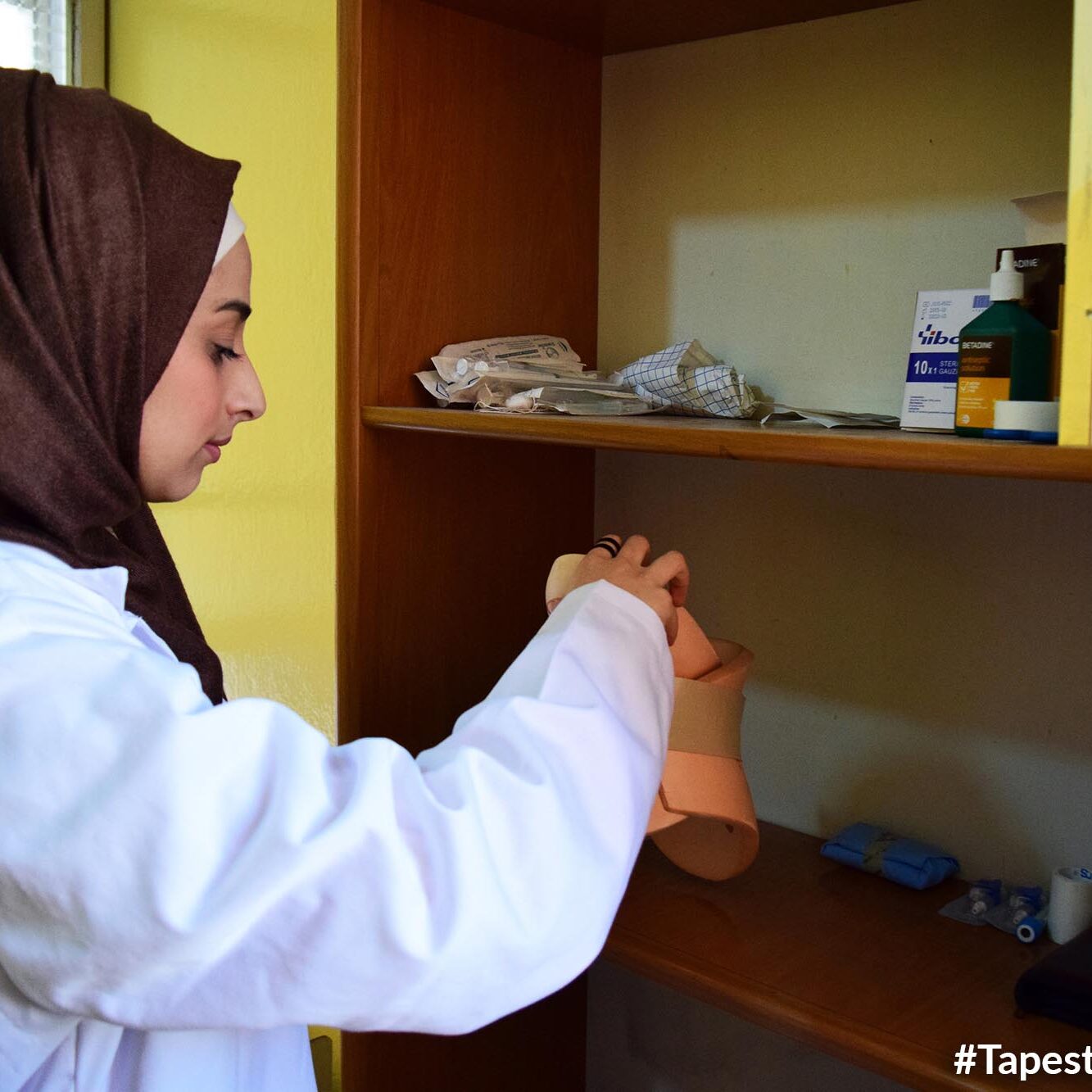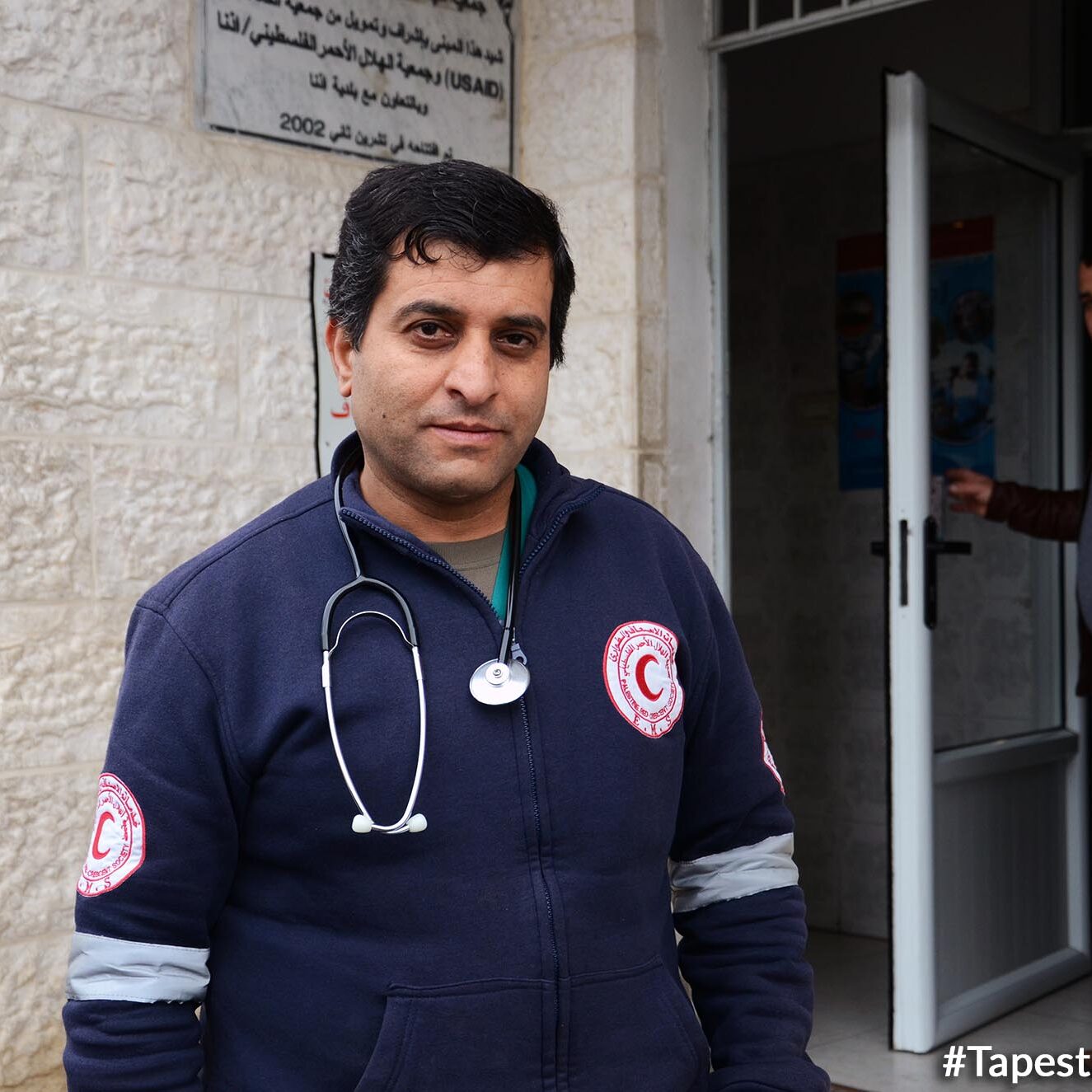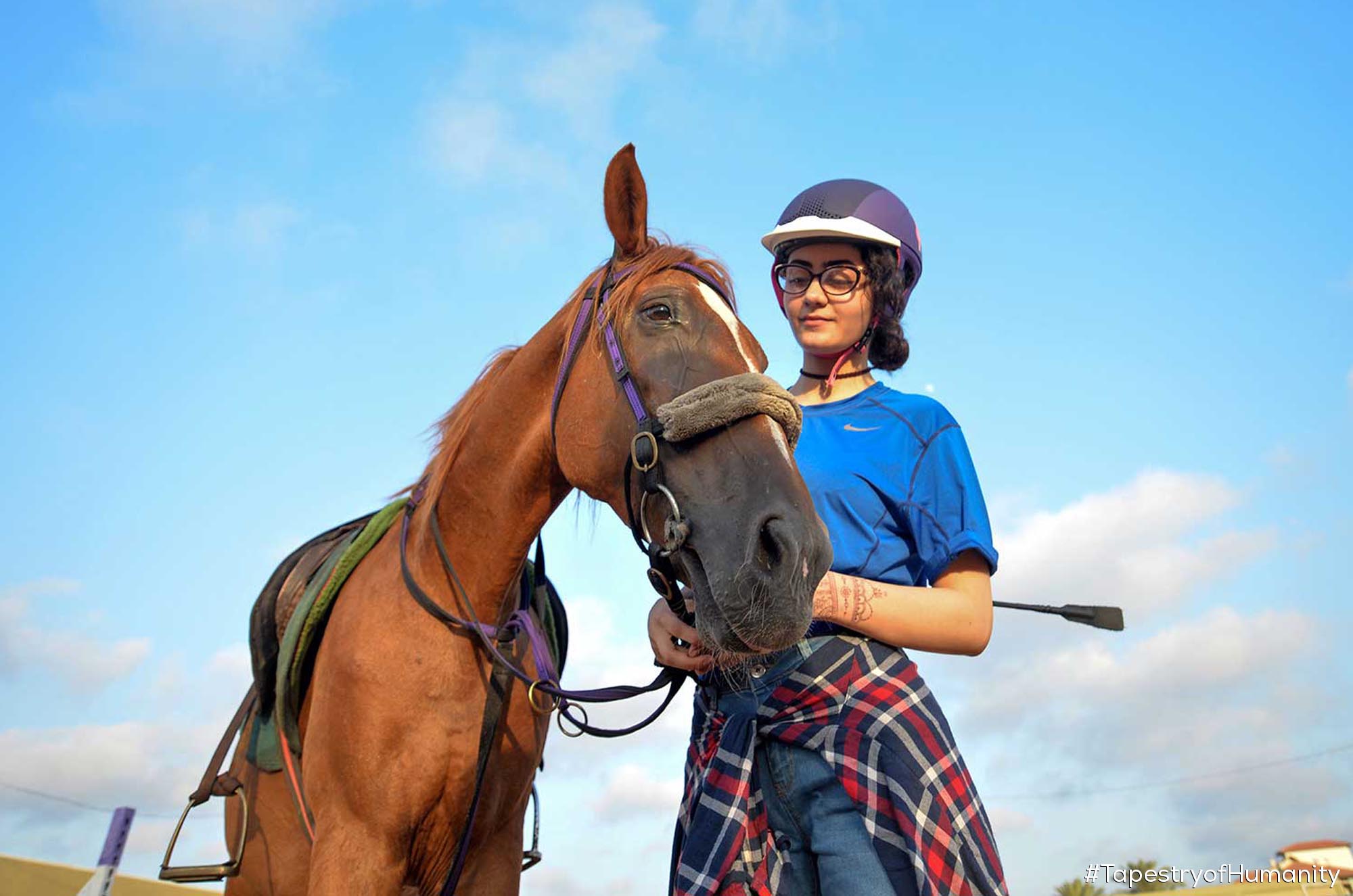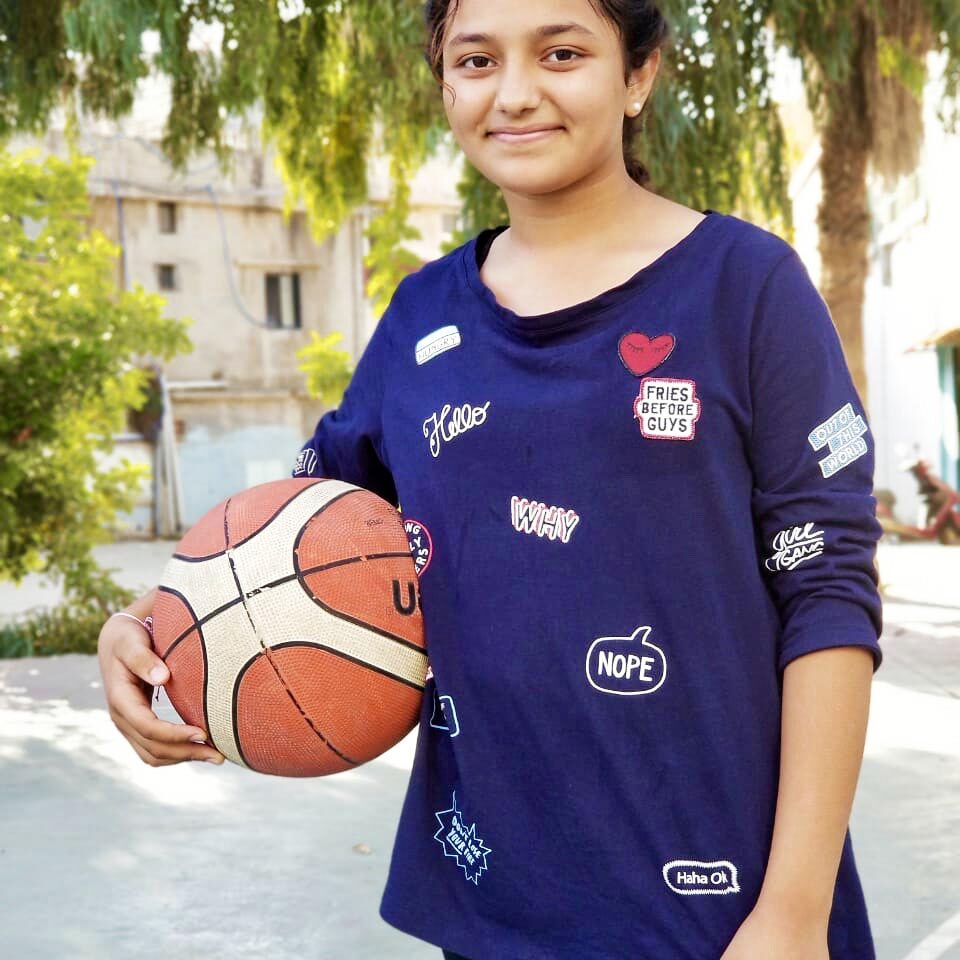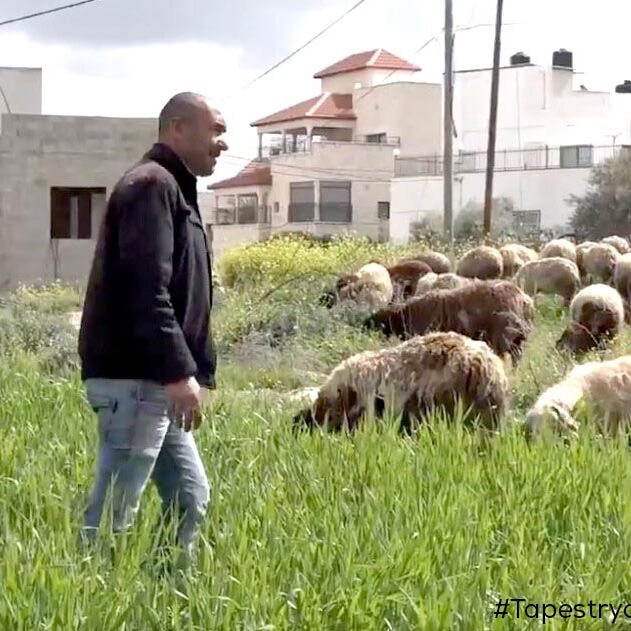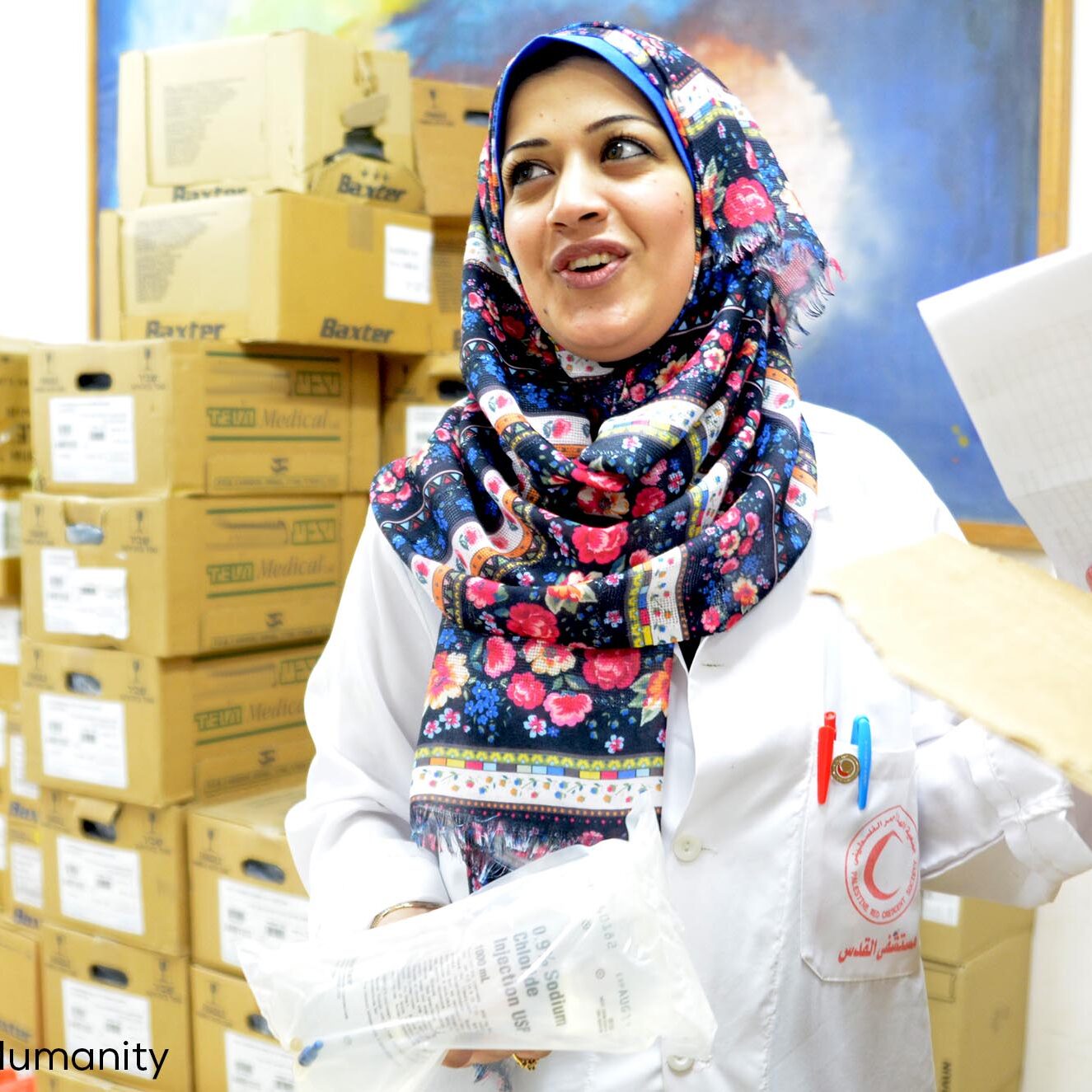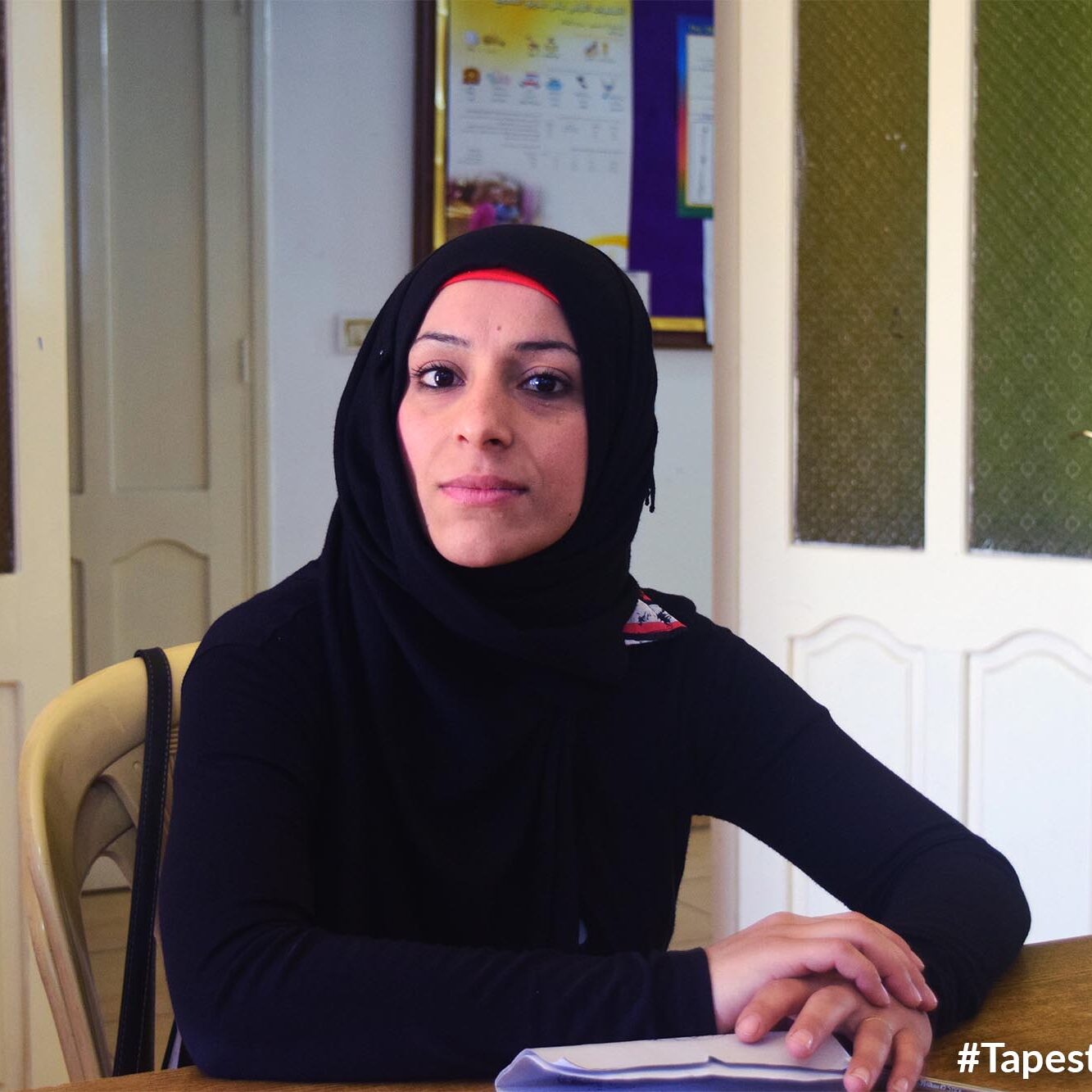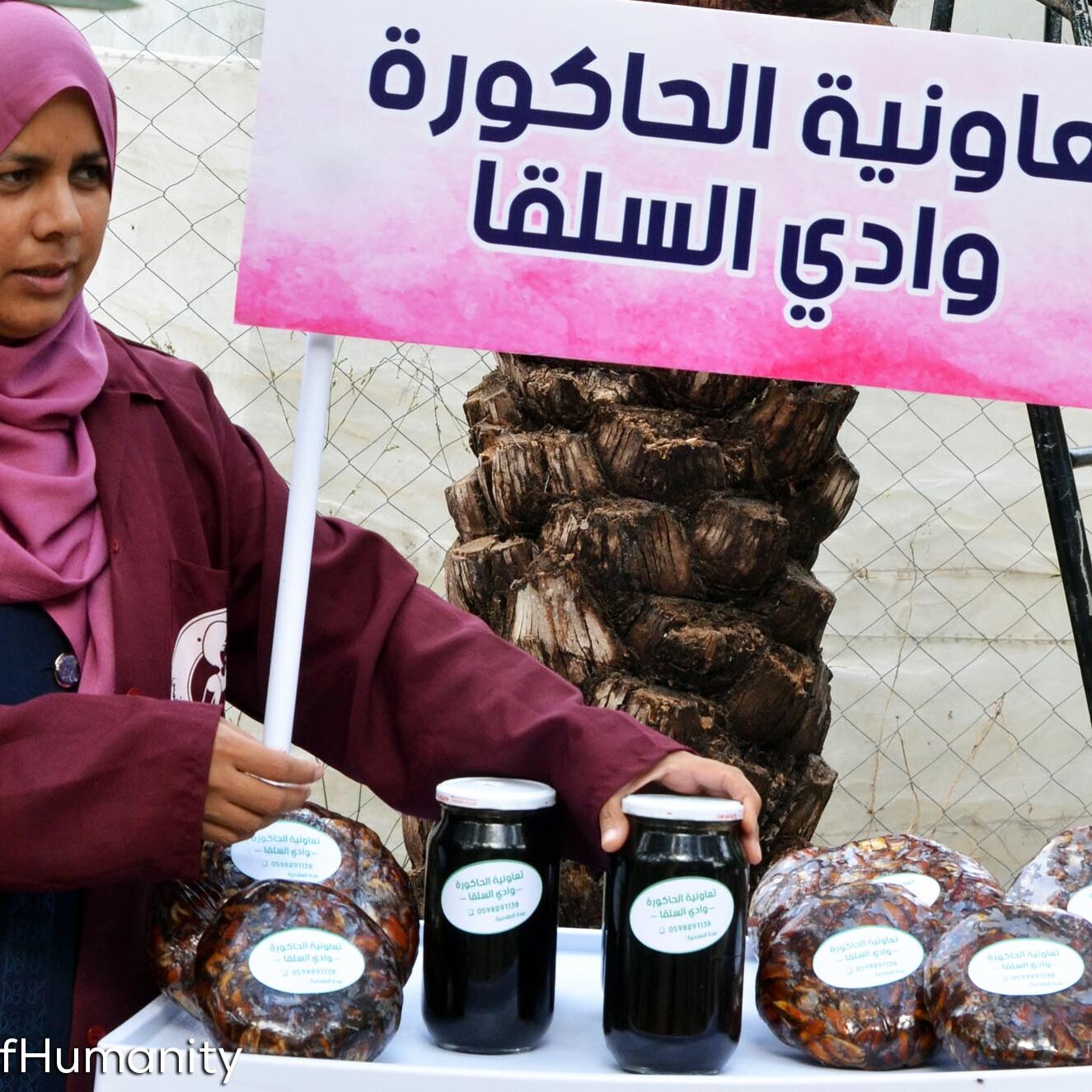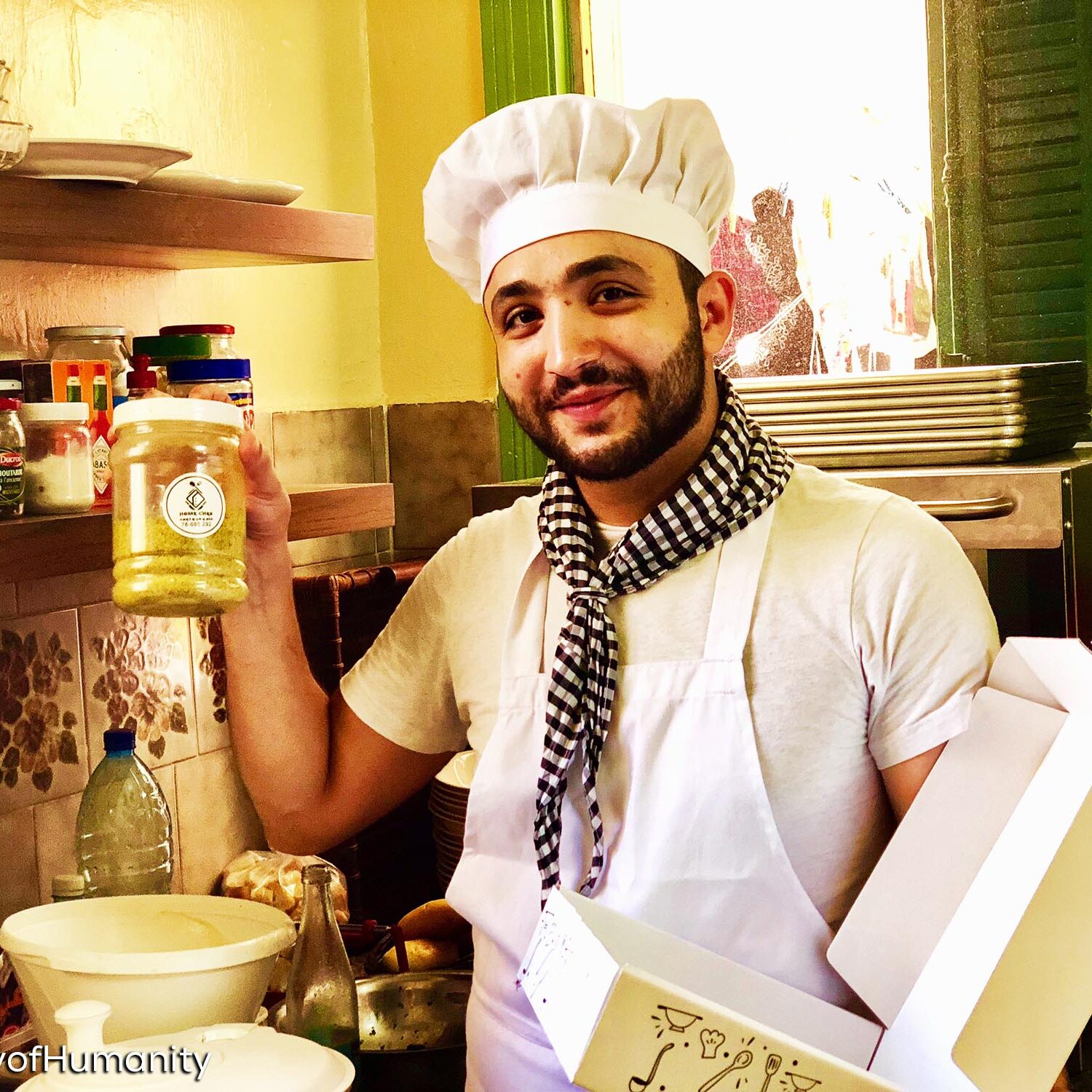In commemoration of our 50th anniversary in 2018, we posted a new image and story each week to create our #TapestryofHumanity.
"I fell in love with horses when I was really little. My early drawings were all shapes resembling horses. I've never been afraid of them, despite their large size. My mom used to take me to pet the horses while she held me in her lap. I guess that's where my interest started. The sky’s the limit as far as my ambitions. I hope to be known worldwide and be the first girl from Middle East with a prosthetic leg who jumps fences on horseback."
Heba, horseback rider
(Gaza City, Gaza)
Each photo and story will be featured for a week on this page, after which they will be ‘woven’ into Anera's Tapestry of Humanity below where they will be archived.
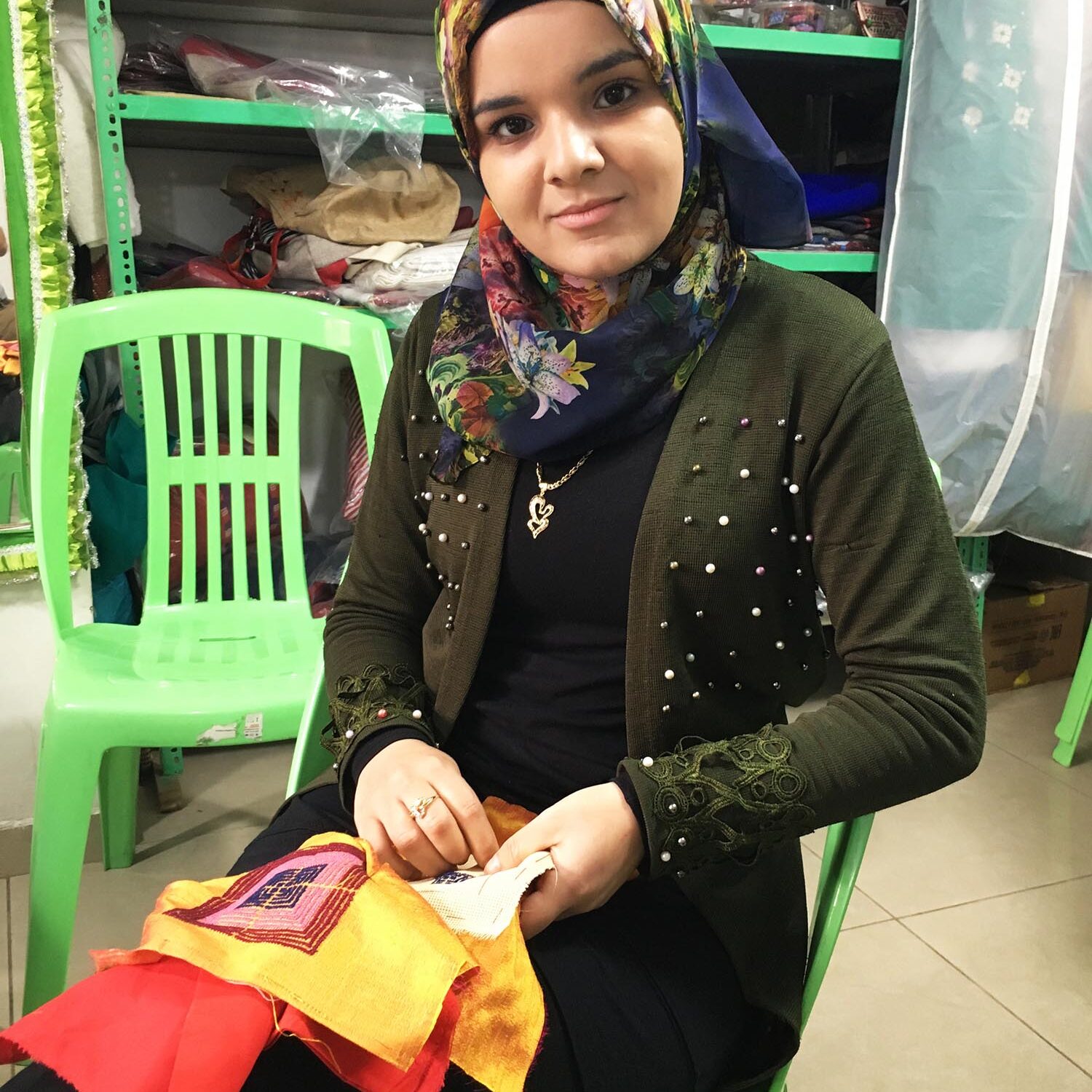

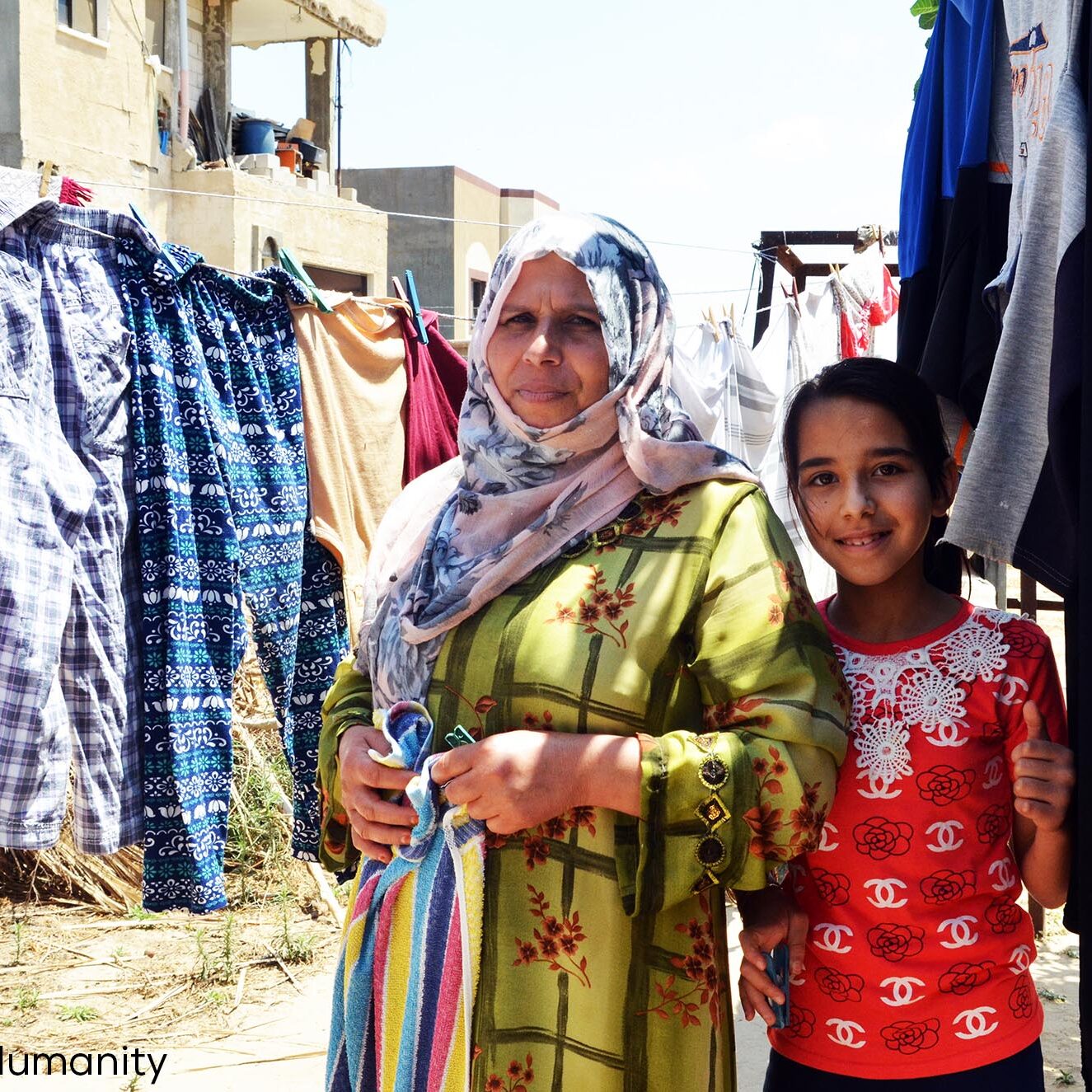

![TOH_LB_Aya_18yearoldSyrian "I came to Lebanon in 2013 with my family. We left Yarmouk [Palestinian refugee camp in Syria], because they were sending all the young men to the army and we decided to leave to protect our family's boys and men. Besides, Yarmouk was being bombed. A bomb fell close to our home. Half the houses were burned and half were destroyed. When we were leaving Syria, we hid my brother's hands. They were burnt and we were afraid the soldiers would think it was from fighting...We left without anything. I had a gold bracelet that my father gave me as a present. I never got the chance to wear it!" - Aya, 18-year-old Syrian refugee & participant in an Anera embroidery class (Saida, Lebanon)](https://www.anera.org/wp-content/uploads/bb-plugin/cache/TOH_LB_Aya_18yearoldSyrian-square-c52fe1e6f97e26bbbaa81c6bfc2fc1c7-5b9bffbf26126.jpg)
![TOH_LB_Aya_18yearoldSyrian "I came to Lebanon in 2013 with my family. We left Yarmouk [Palestinian refugee camp in Syria], because they were sending all the young men to the army and we decided to leave to protect our family's boys and men. Besides, Yarmouk was being bombed. A bomb fell close to our home. Half the houses were burned and half were destroyed. When we were leaving Syria, we hid my brother's hands. They were burnt and we were afraid the soldiers would think it was from fighting...We left without anything. I had a gold bracelet that my father gave me as a present. I never got the chance to wear it!" - Aya, 18-year-old Syrian refugee & participant in an Anera embroidery class (Saida, Lebanon)](https://www.anera.org/wp-content/uploads/bb-plugin/cache/TOH_LB_Aya_18yearoldSyrian-square-c52fe1e6f97e26bbbaa81c6bfc2fc1c7-5b9bffbf26126.jpg)
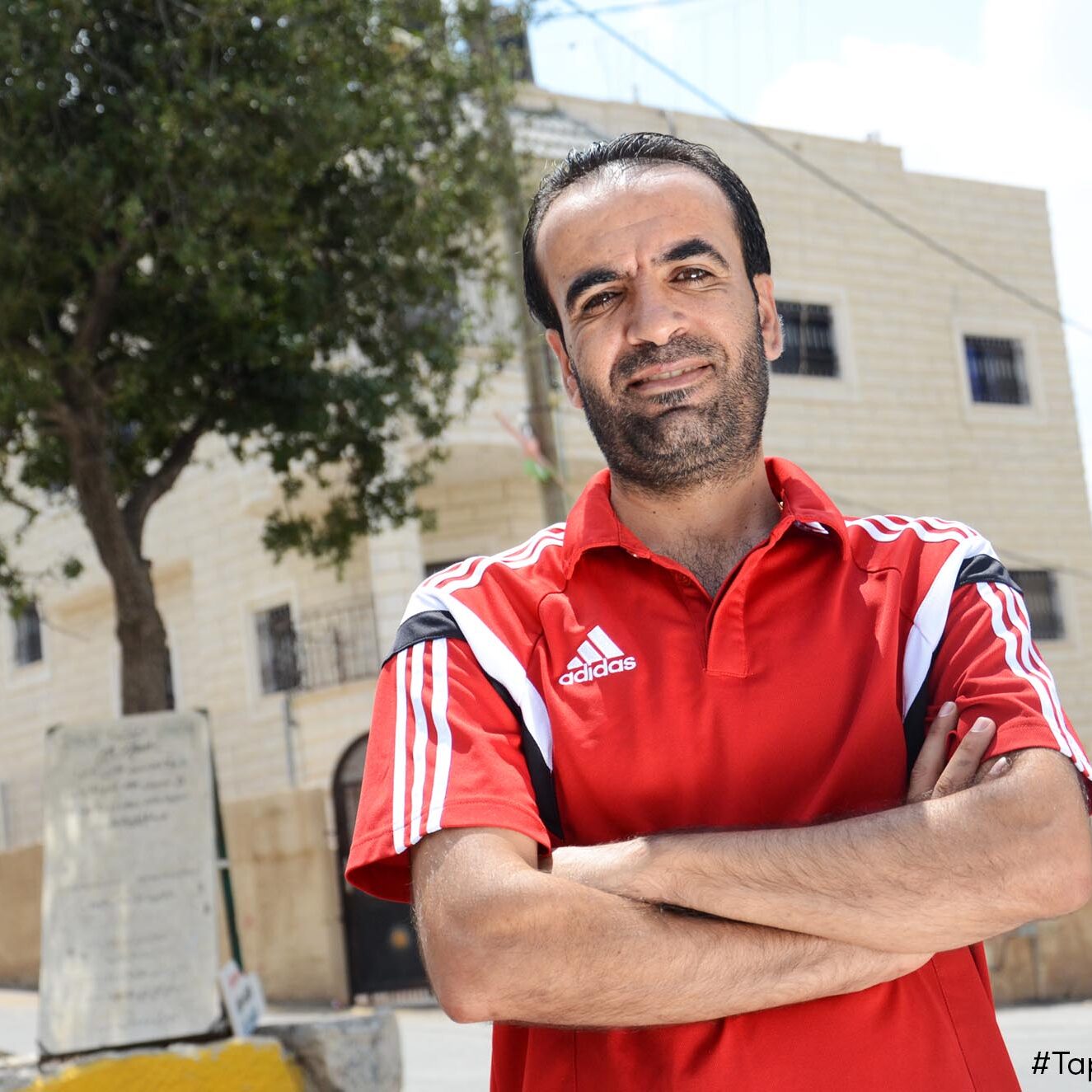

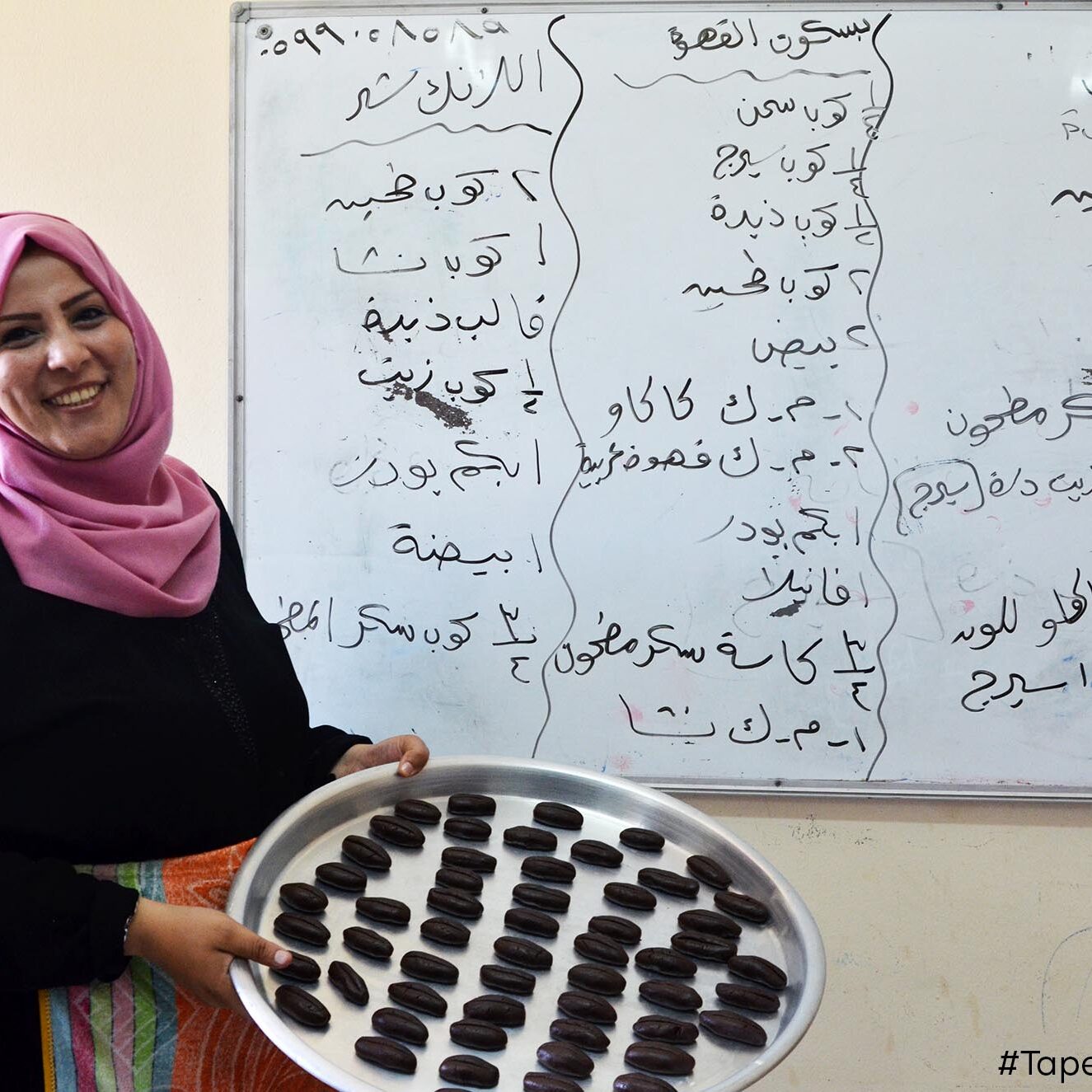

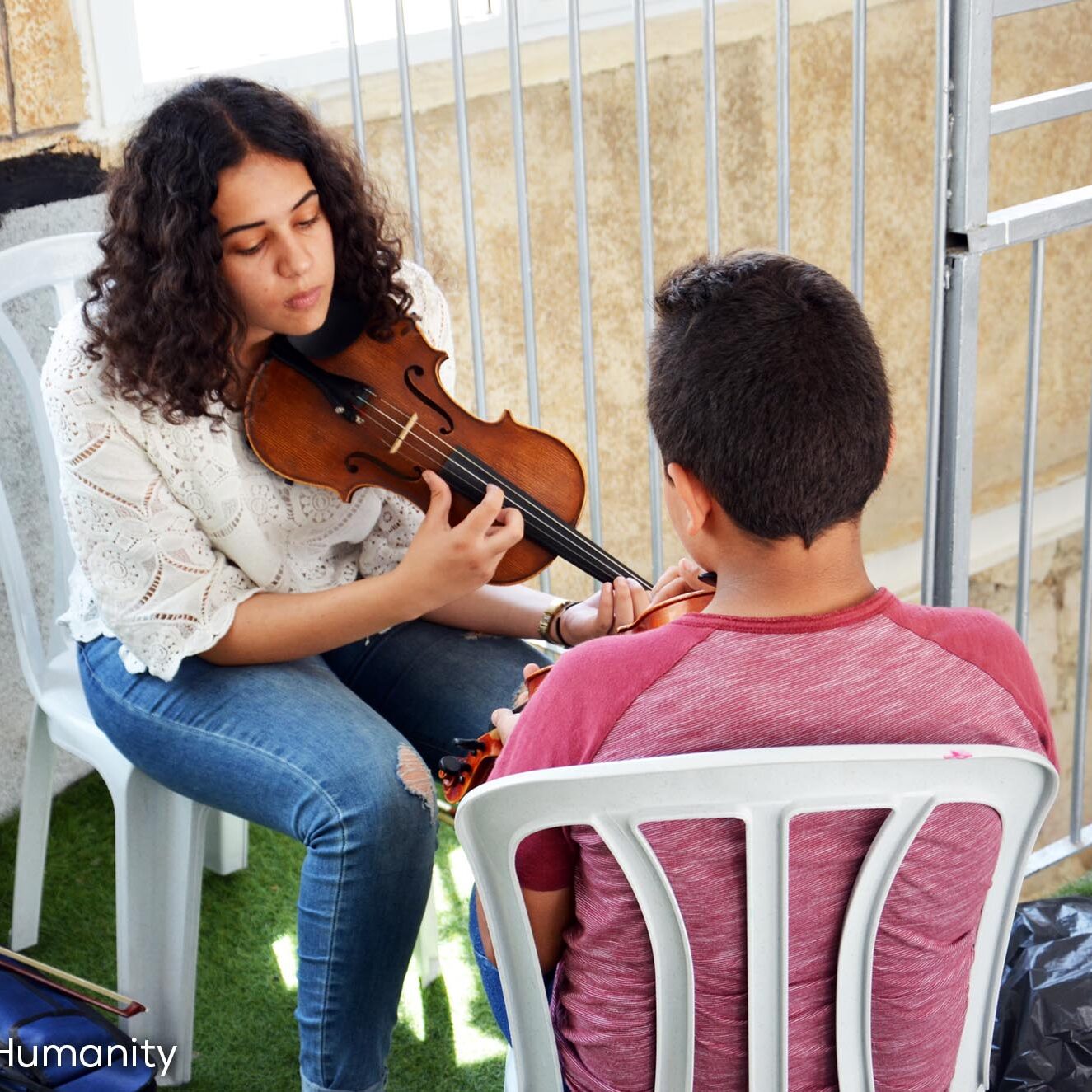

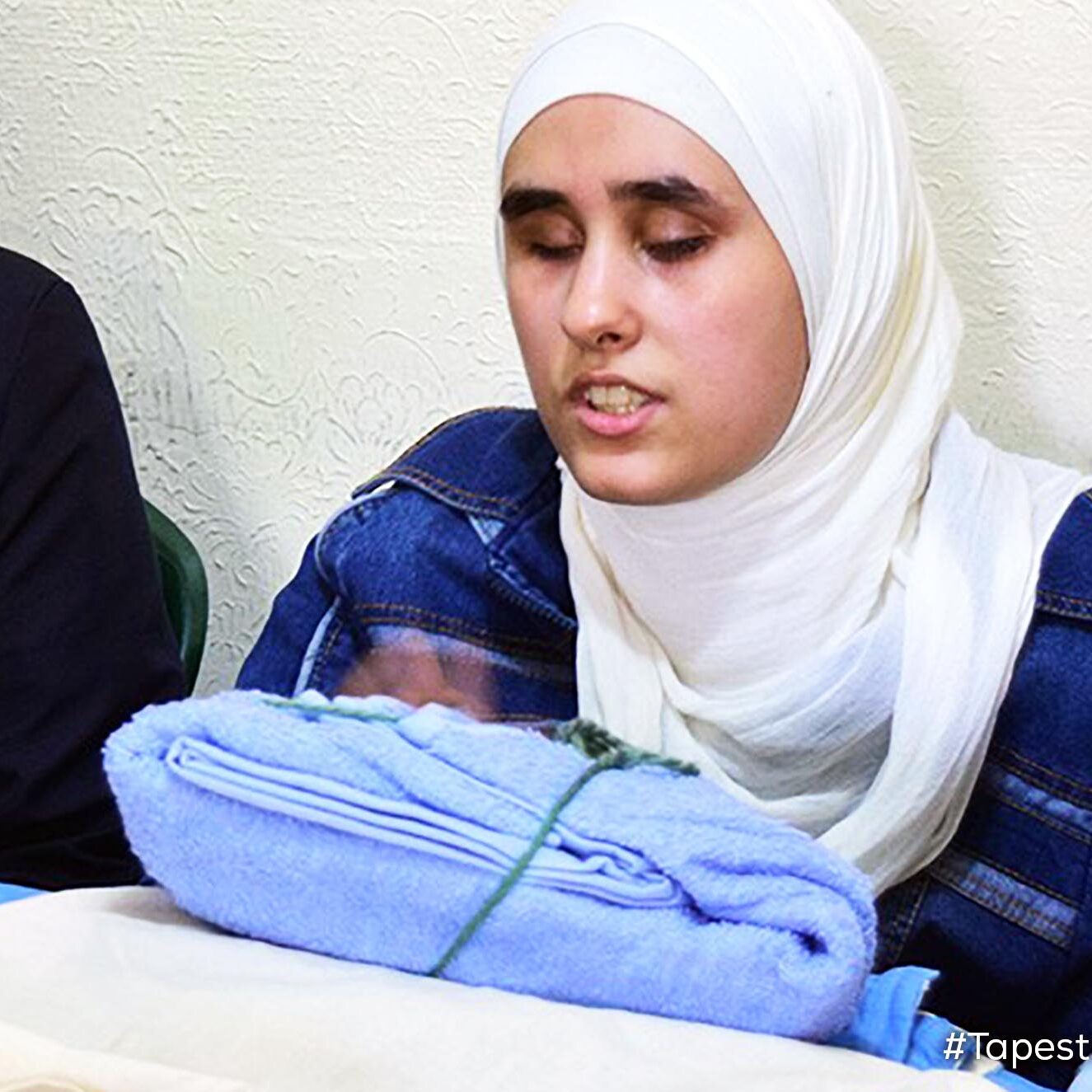

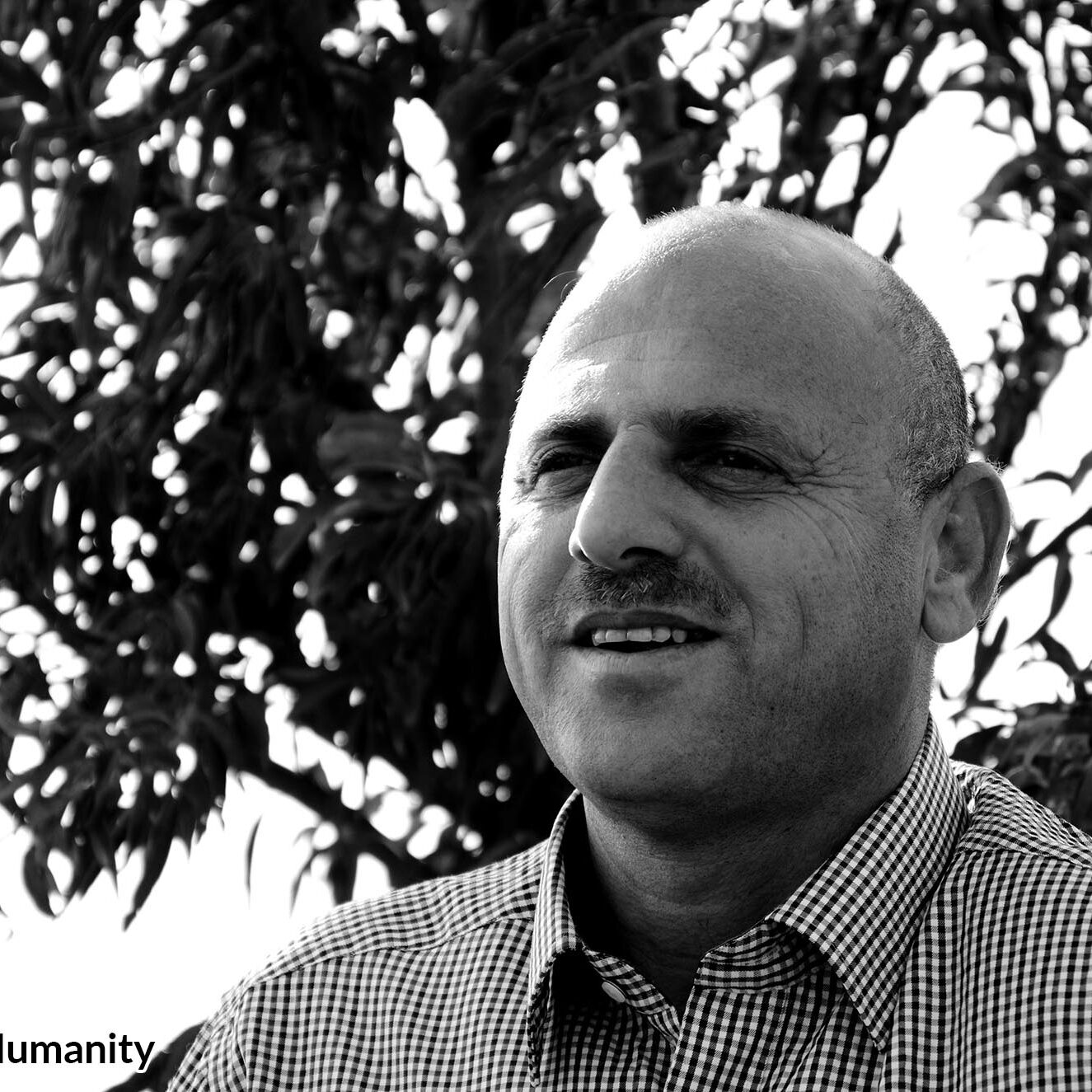

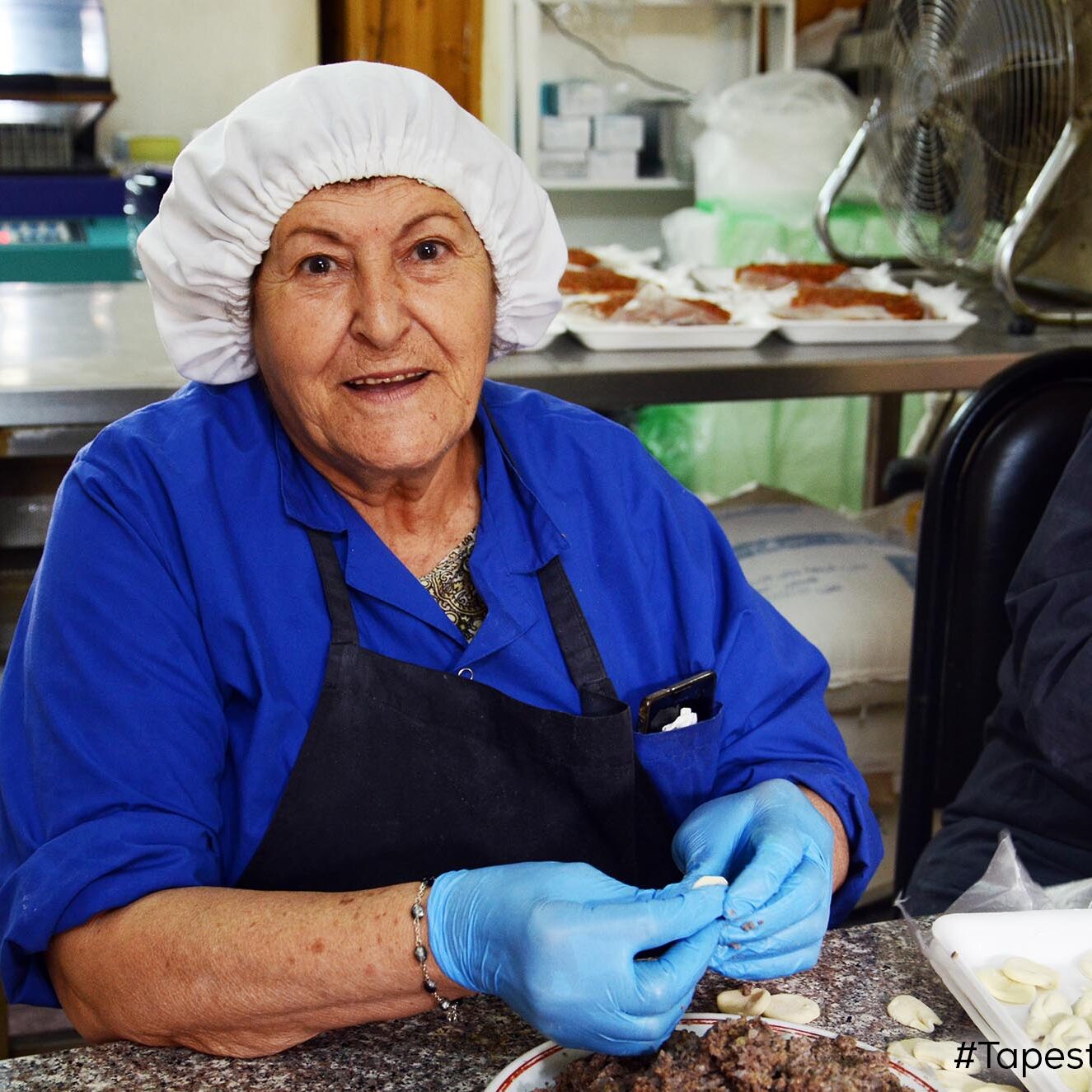

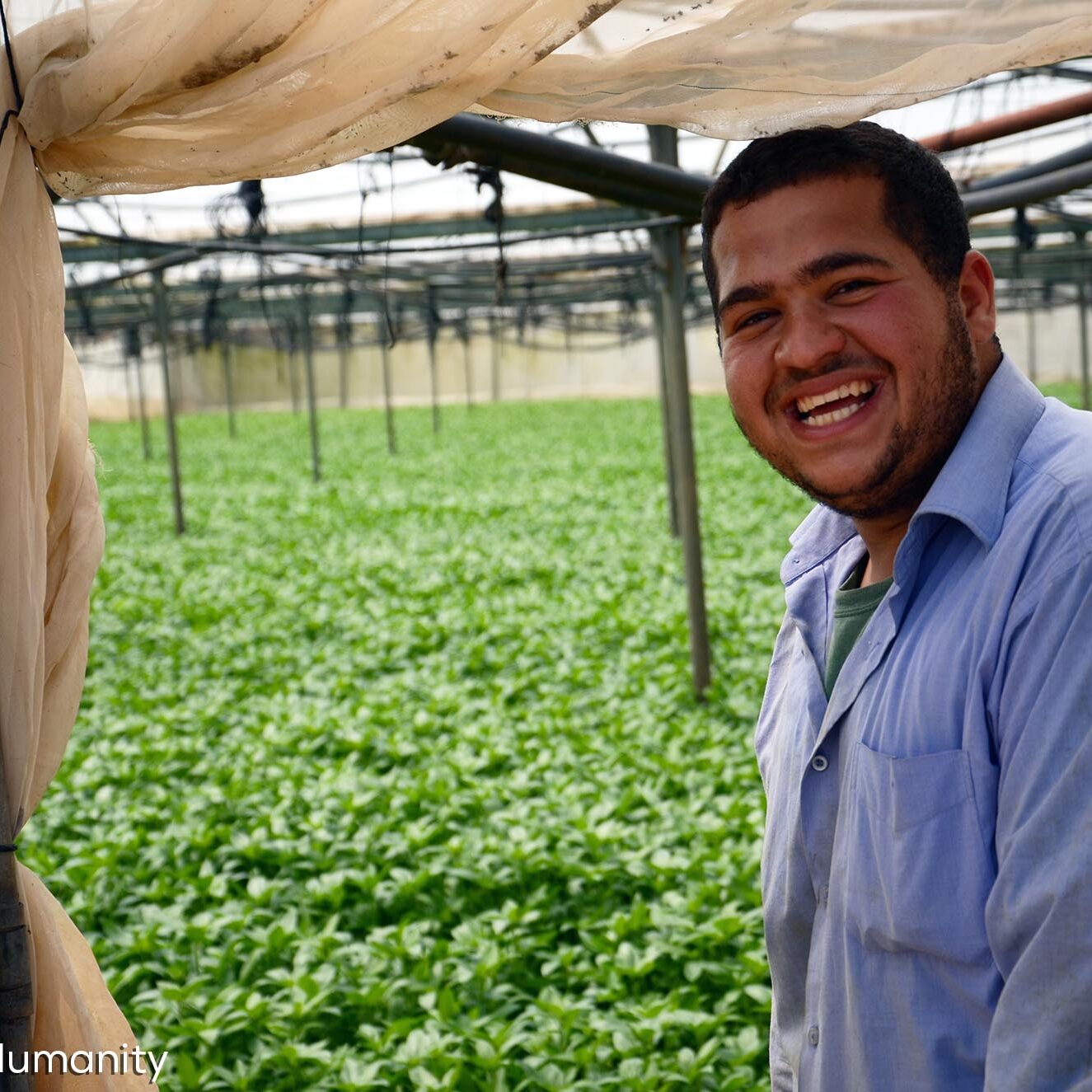

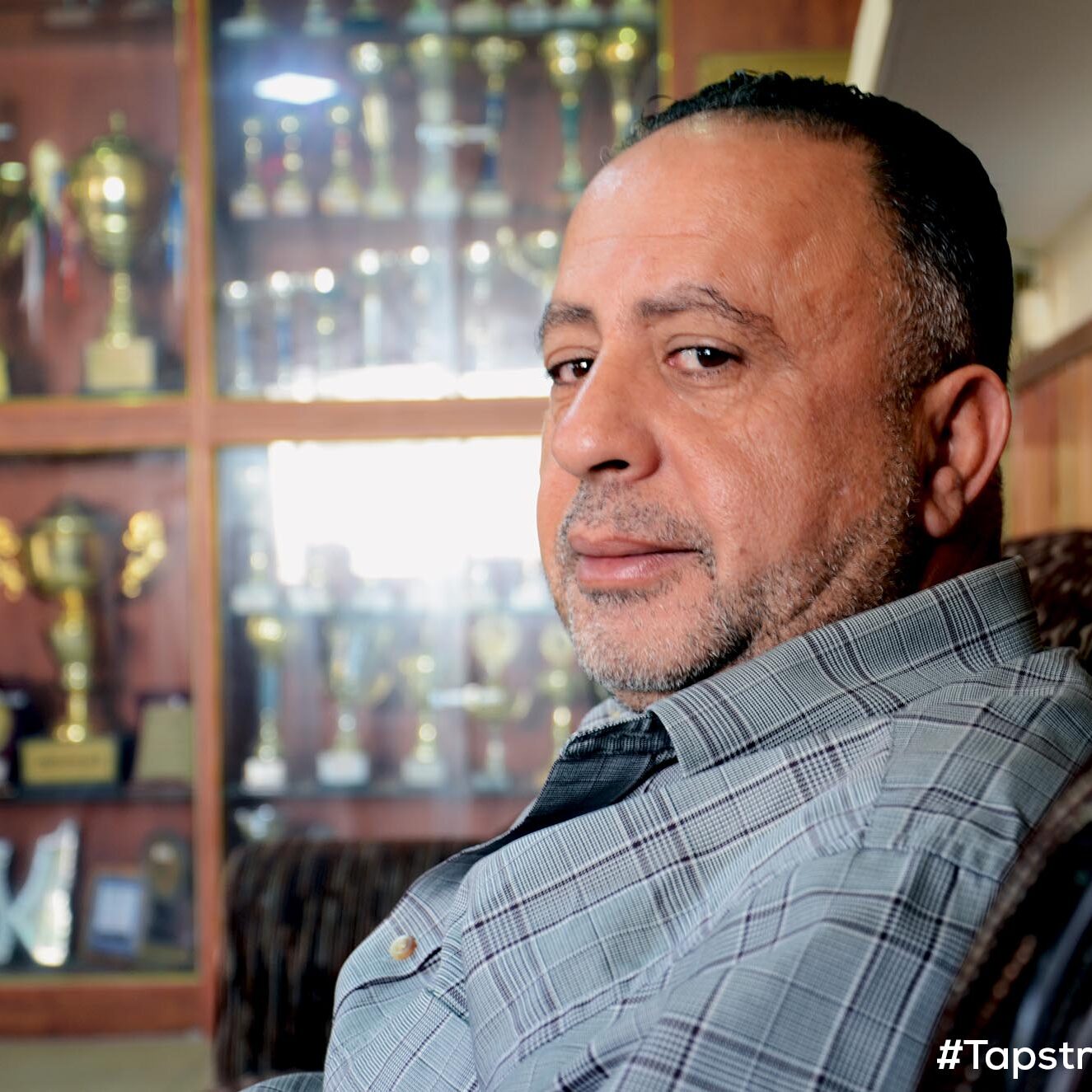

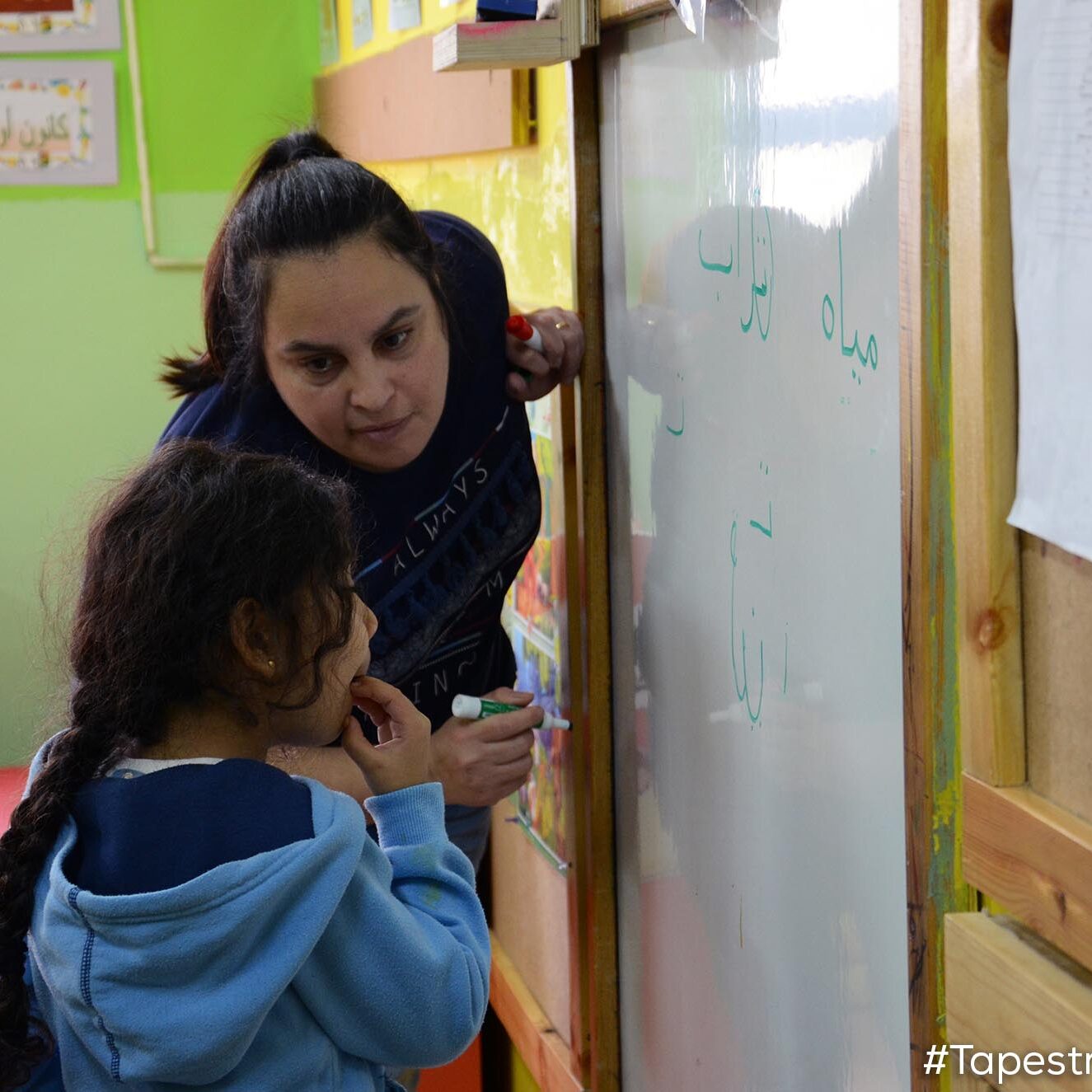

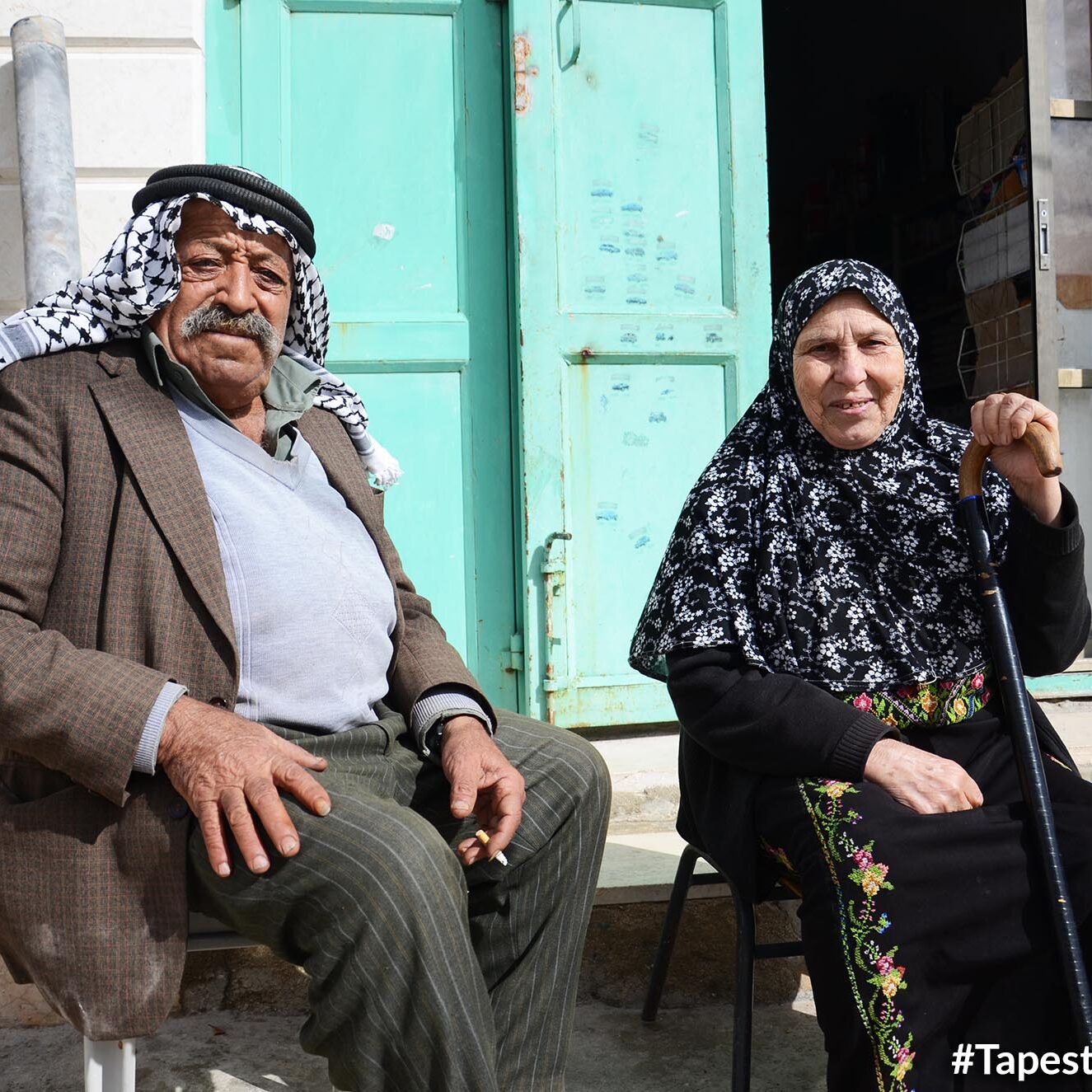

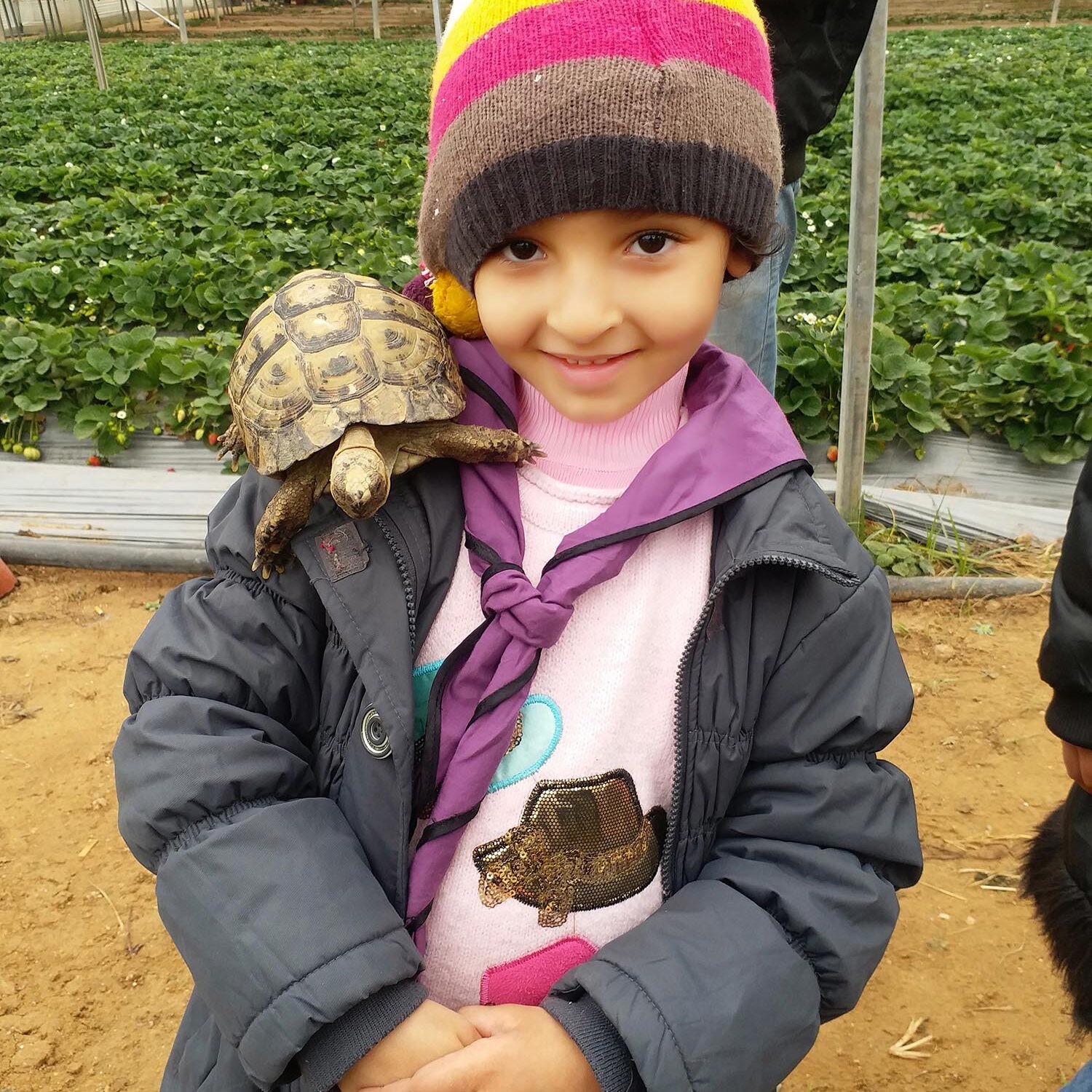

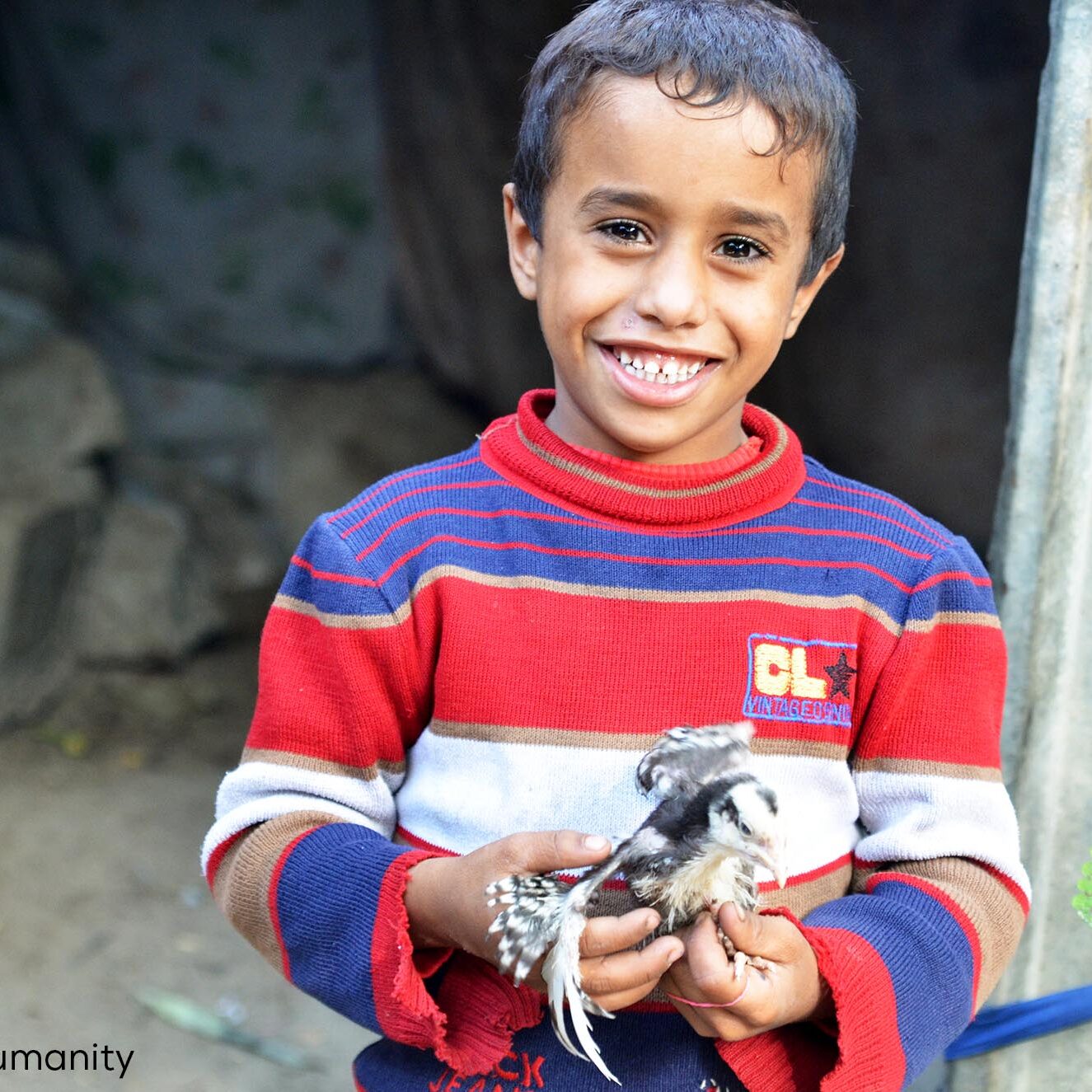

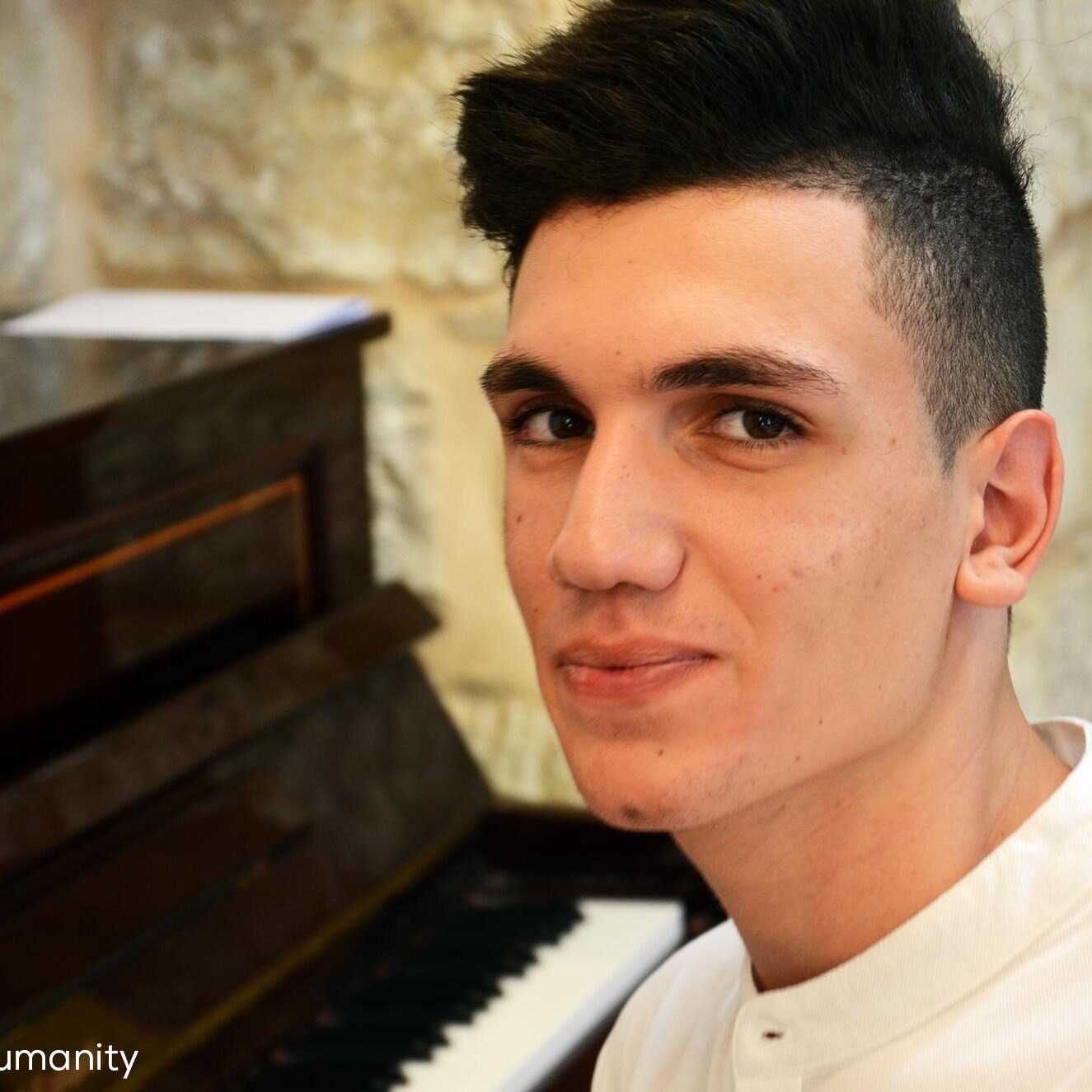

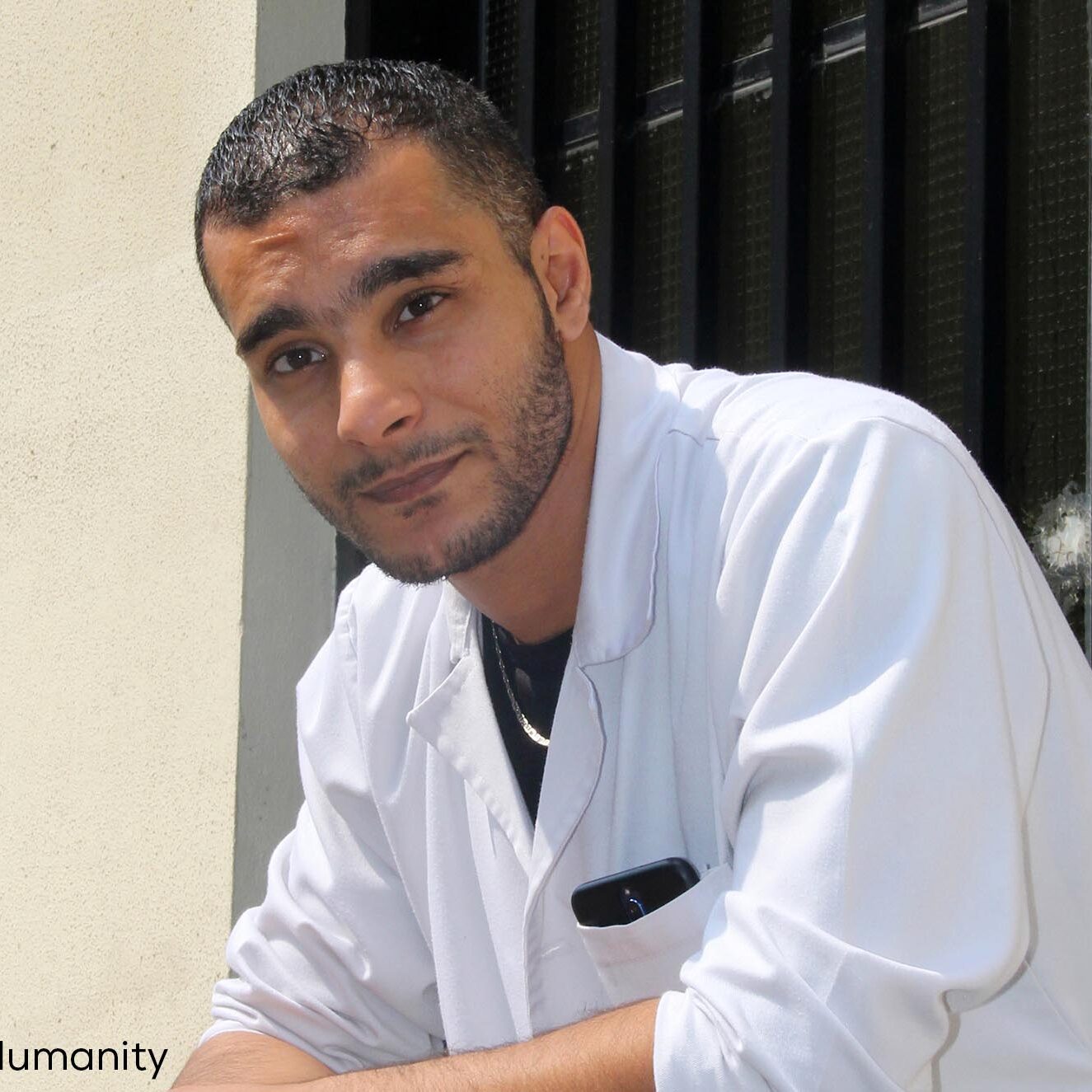

![TOH_Gaza_Hani "Many people in Gaza find ways to make a living. It’s the dignity of work that keeps them going. I have met families who rent out sports fields and other open spaces for events. There are also many young entrepreneurs with stands selling coffee, tobacco, small toys or slushies. I had to do a double-take the other day when I saw a smoothie truck drive past me. In Washington, DC, where I live, food trucks are everywhere. In Gaza, they are a miracle." - Hani, father, brother and son from Gaza (Beit Lahia, Gaza) [Photo: Hani seated next to his mother in Gaza, who he hadn't seen in five years. Summer, 2018]](https://www.anera.org/wp-content/uploads/bb-plugin/cache/TOH_Gaza_Hani-square-589ddb02d9802b293b3df7fb78a69024-5bae464e6470f.jpg)
![TOH_Gaza_Hani "Many people in Gaza find ways to make a living. It’s the dignity of work that keeps them going. I have met families who rent out sports fields and other open spaces for events. There are also many young entrepreneurs with stands selling coffee, tobacco, small toys or slushies. I had to do a double-take the other day when I saw a smoothie truck drive past me. In Washington, DC, where I live, food trucks are everywhere. In Gaza, they are a miracle." - Hani, father, brother and son from Gaza (Beit Lahia, Gaza) [Photo: Hani seated next to his mother in Gaza, who he hadn't seen in five years. Summer, 2018]](https://www.anera.org/wp-content/uploads/bb-plugin/cache/TOH_Gaza_Hani-square-589ddb02d9802b293b3df7fb78a69024-5bae464e6470f.jpg)
![TOH_DC_John Richardson "I wrapped up my affairs in Beirut in July and returned to Washington, where we opened the first Anera office on August 12, 1968. Jim Sams [Anera founder] had rented office space in a handsome but somewhat rundown structure anchoring the southeast corner of 15th and H Street in what was then called Washington’s financial district. I remember that early on we purchased a heavy office safe and were trying to figure out where to put it. While I studied the situation, Dr. Davis [Anera's first president], a white-haired, dignified man, single-handedly pushed the safe across the office floor to its final location. Anera only had four staff in those days." - John Richardson, First Executive Director & Second President of Anera (Photo: Allenby Bridge, Jordan, 1967)](https://www.anera.org/wp-content/uploads/bb-plugin/cache/TOH_DC_John-Richardson-square-2575c8372c4d3153998bb9579f9678ef-5b75ed39b248b.jpg)
![TOH_DC_John Richardson "I wrapped up my affairs in Beirut in July and returned to Washington, where we opened the first Anera office on August 12, 1968. Jim Sams [Anera founder] had rented office space in a handsome but somewhat rundown structure anchoring the southeast corner of 15th and H Street in what was then called Washington’s financial district. I remember that early on we purchased a heavy office safe and were trying to figure out where to put it. While I studied the situation, Dr. Davis [Anera's first president], a white-haired, dignified man, single-handedly pushed the safe across the office floor to its final location. Anera only had four staff in those days." - John Richardson, First Executive Director & Second President of Anera (Photo: Allenby Bridge, Jordan, 1967)](https://www.anera.org/wp-content/uploads/bb-plugin/cache/TOH_DC_John-Richardson-square-2575c8372c4d3153998bb9579f9678ef-5b75ed39b248b.jpg)
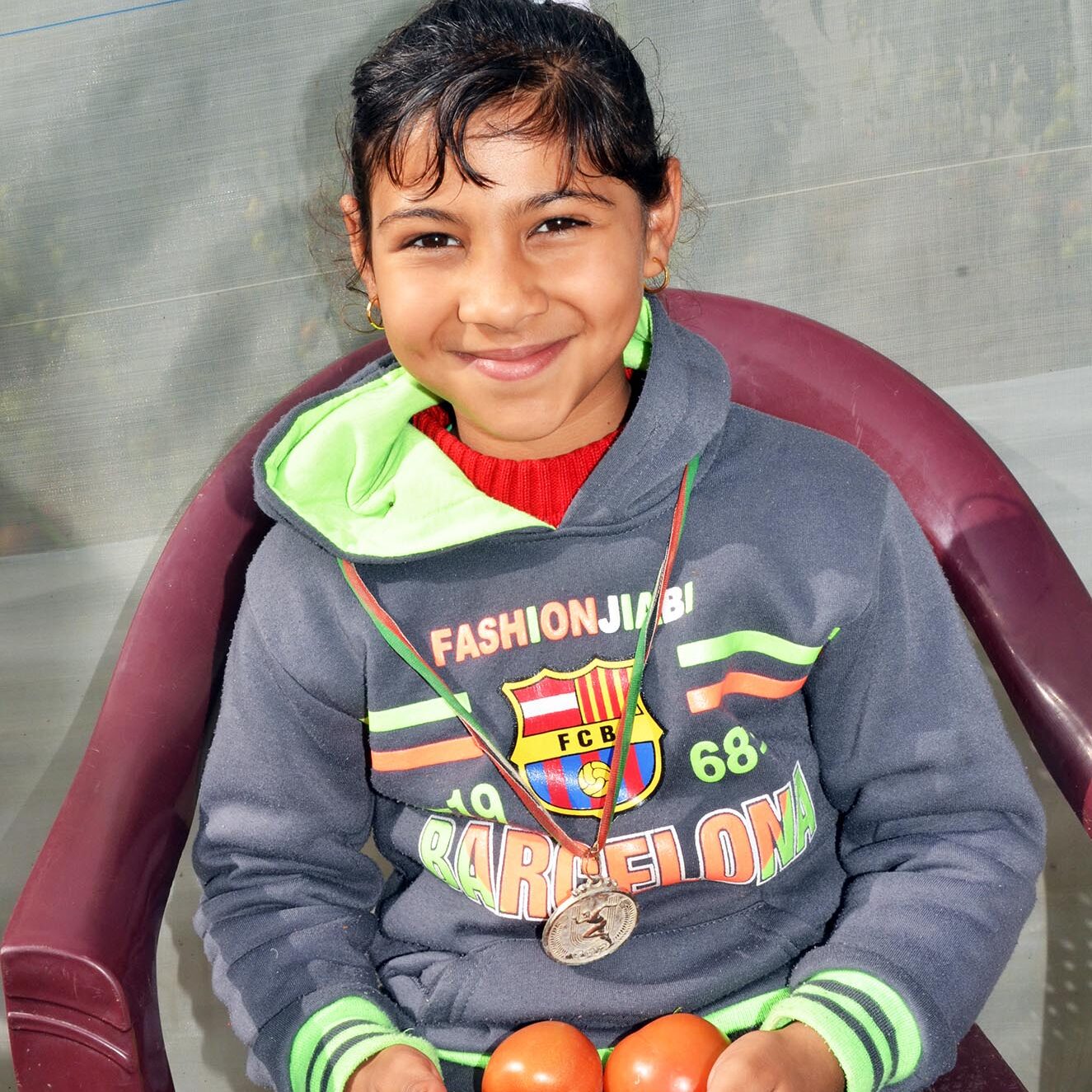

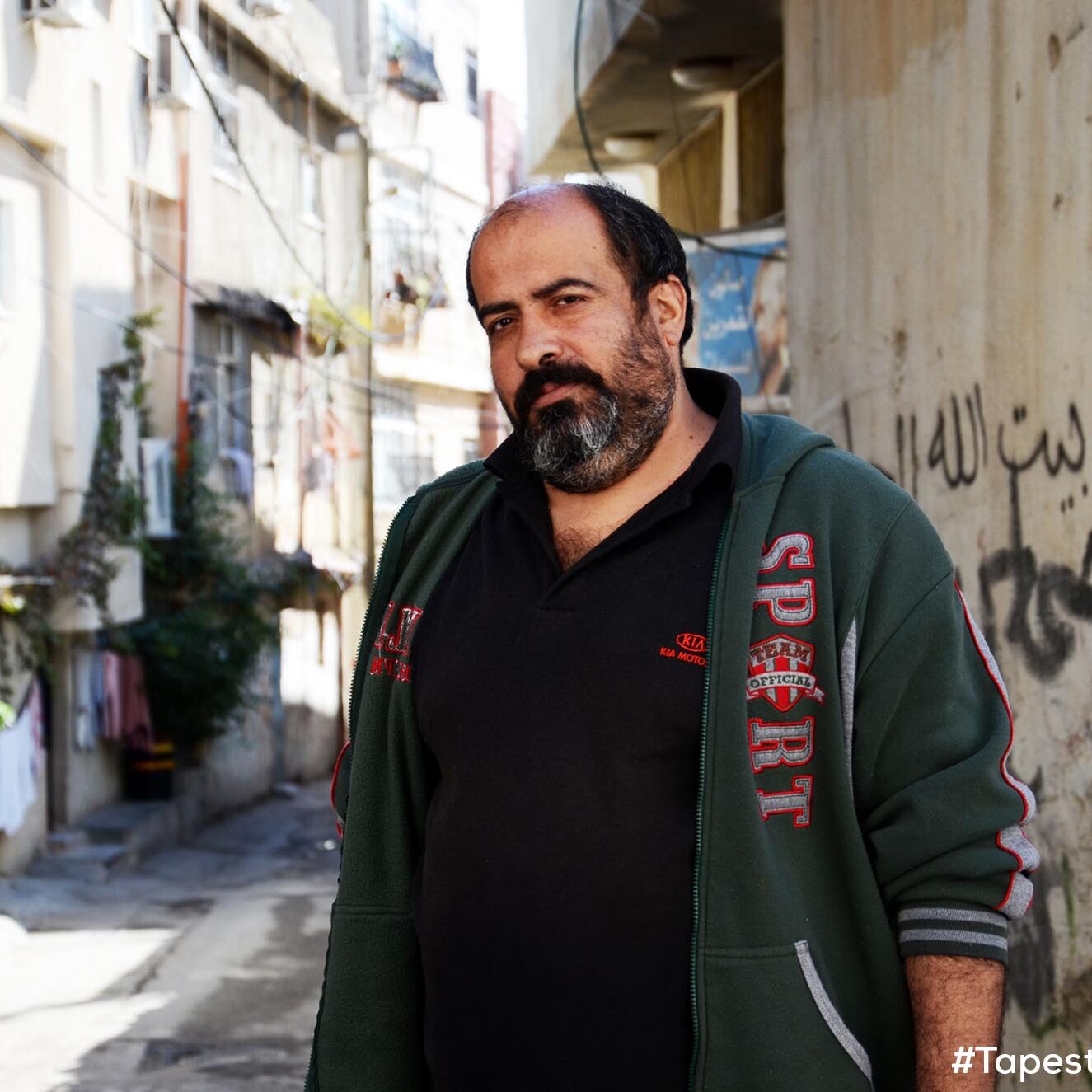

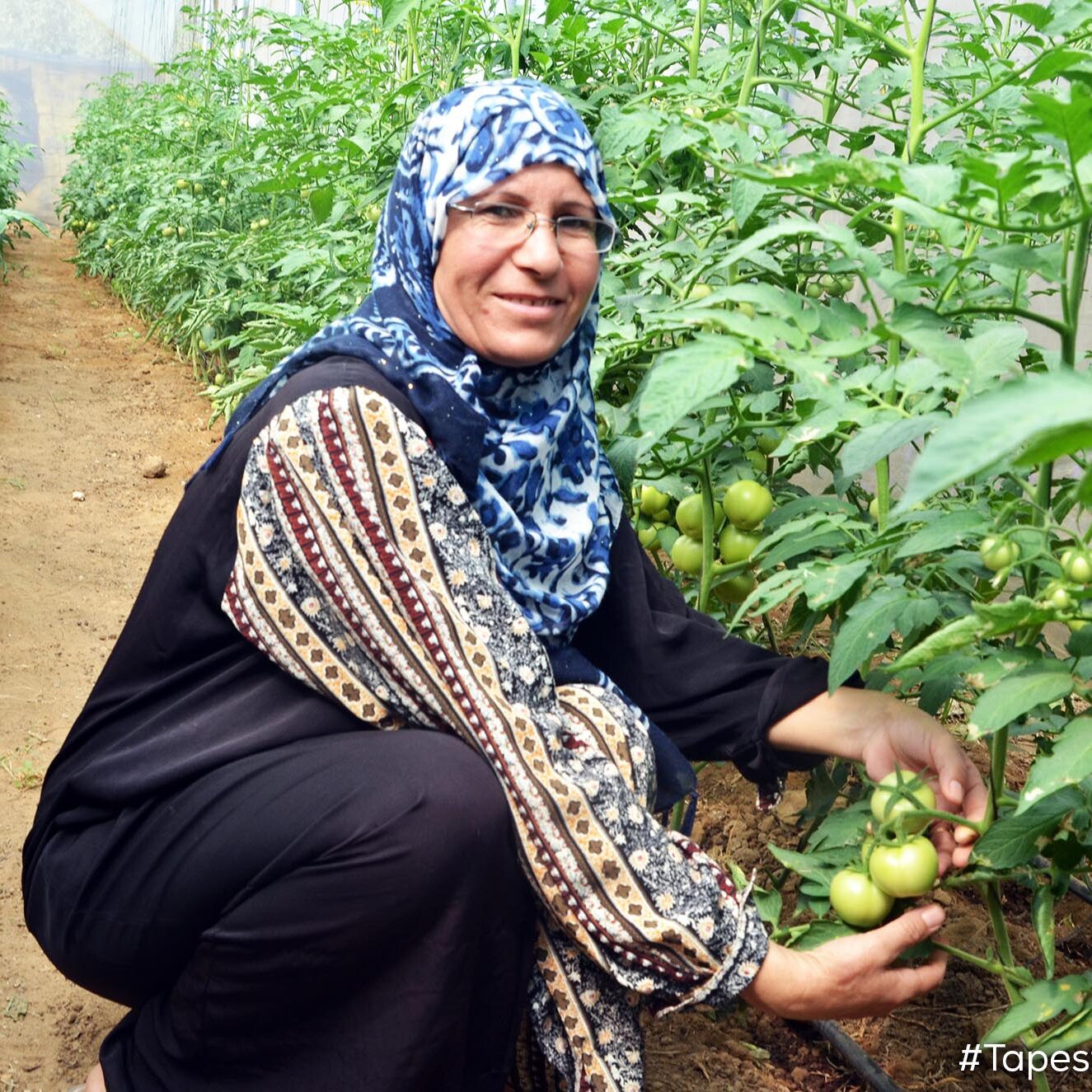

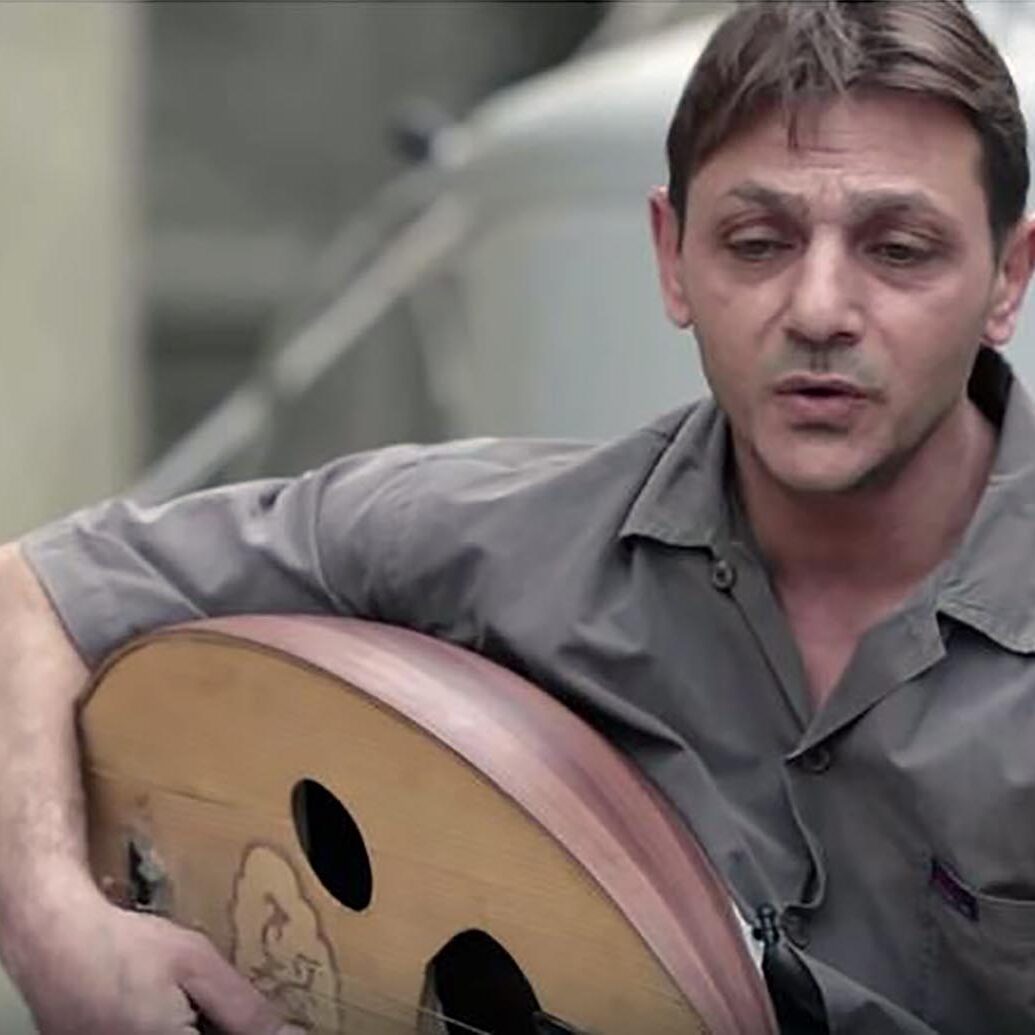

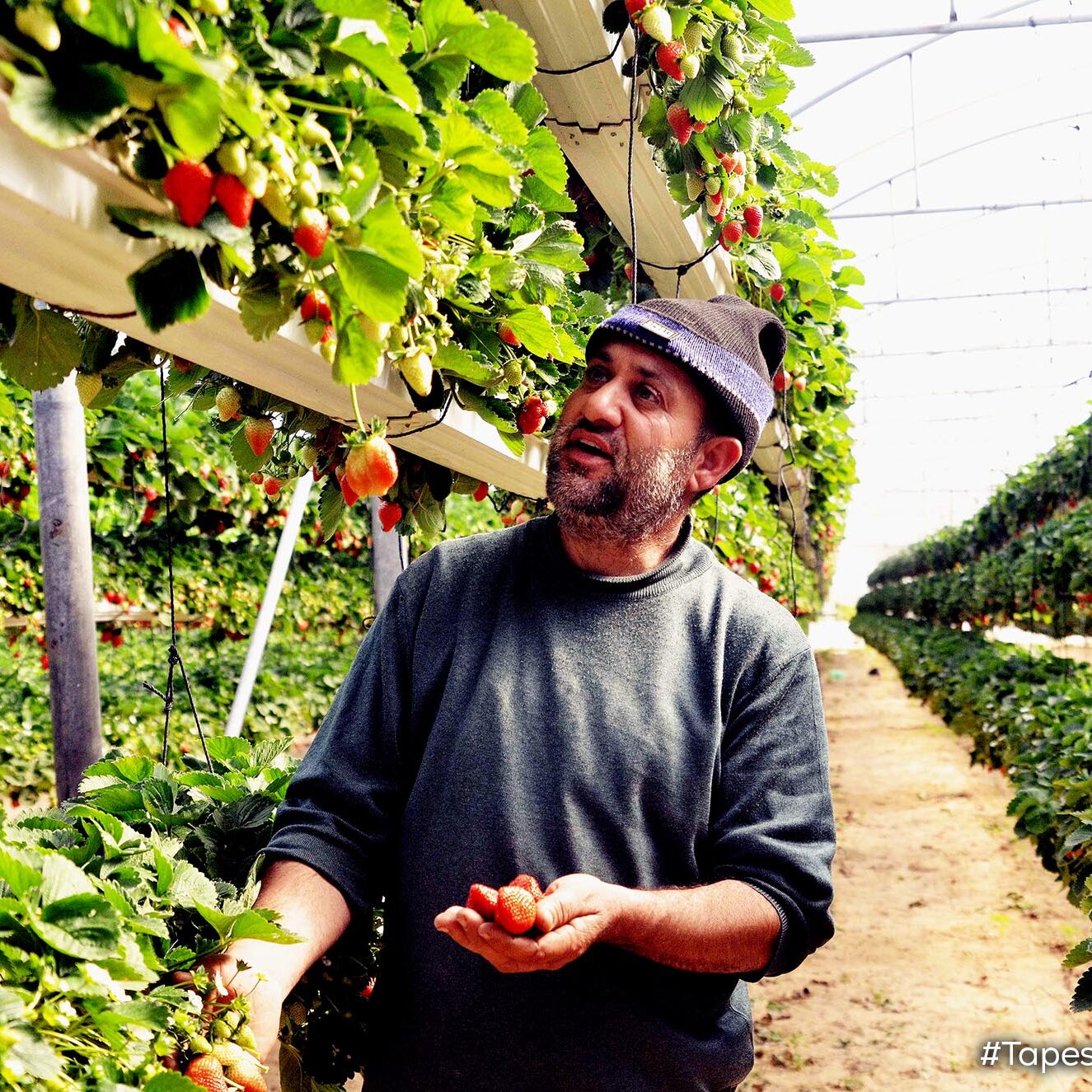

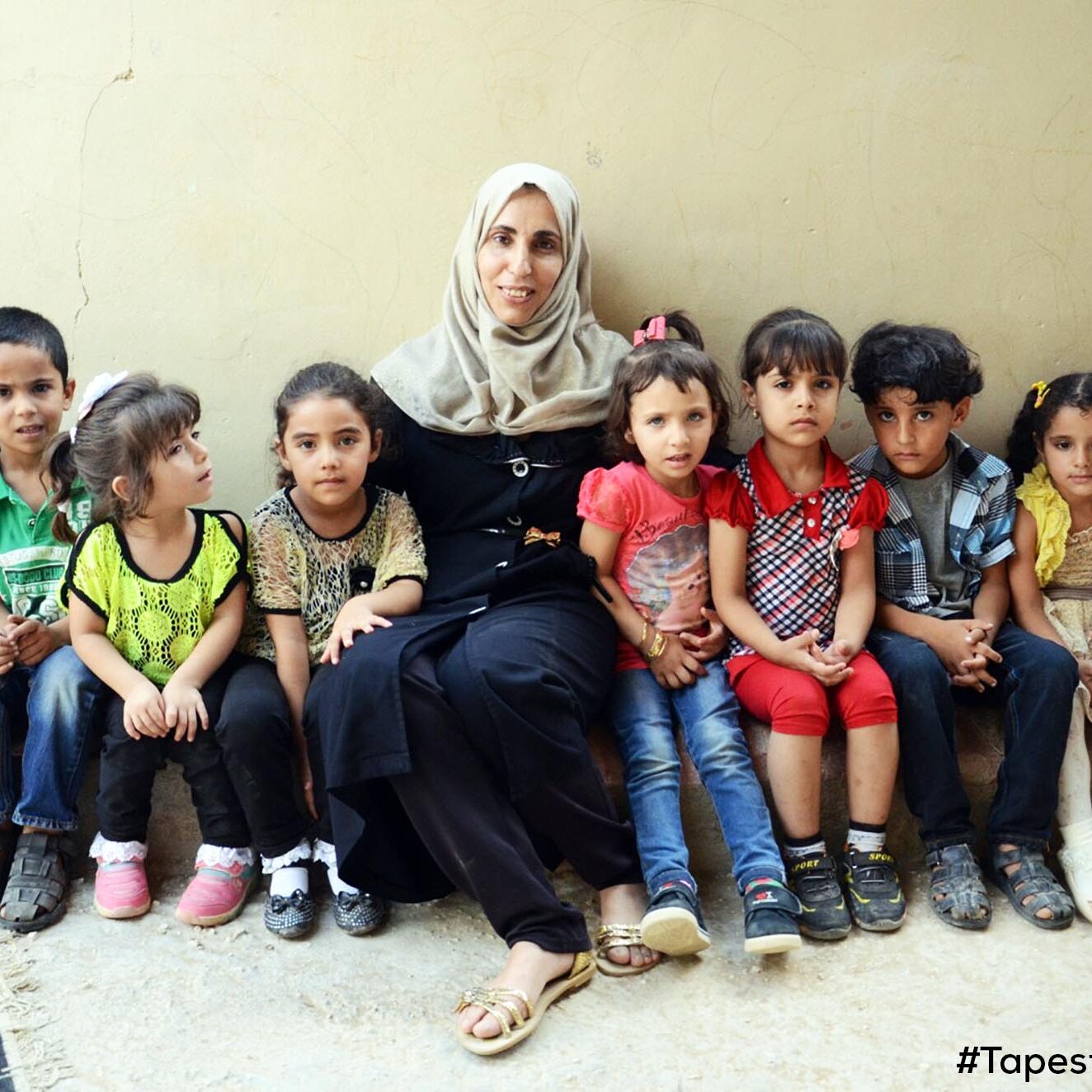

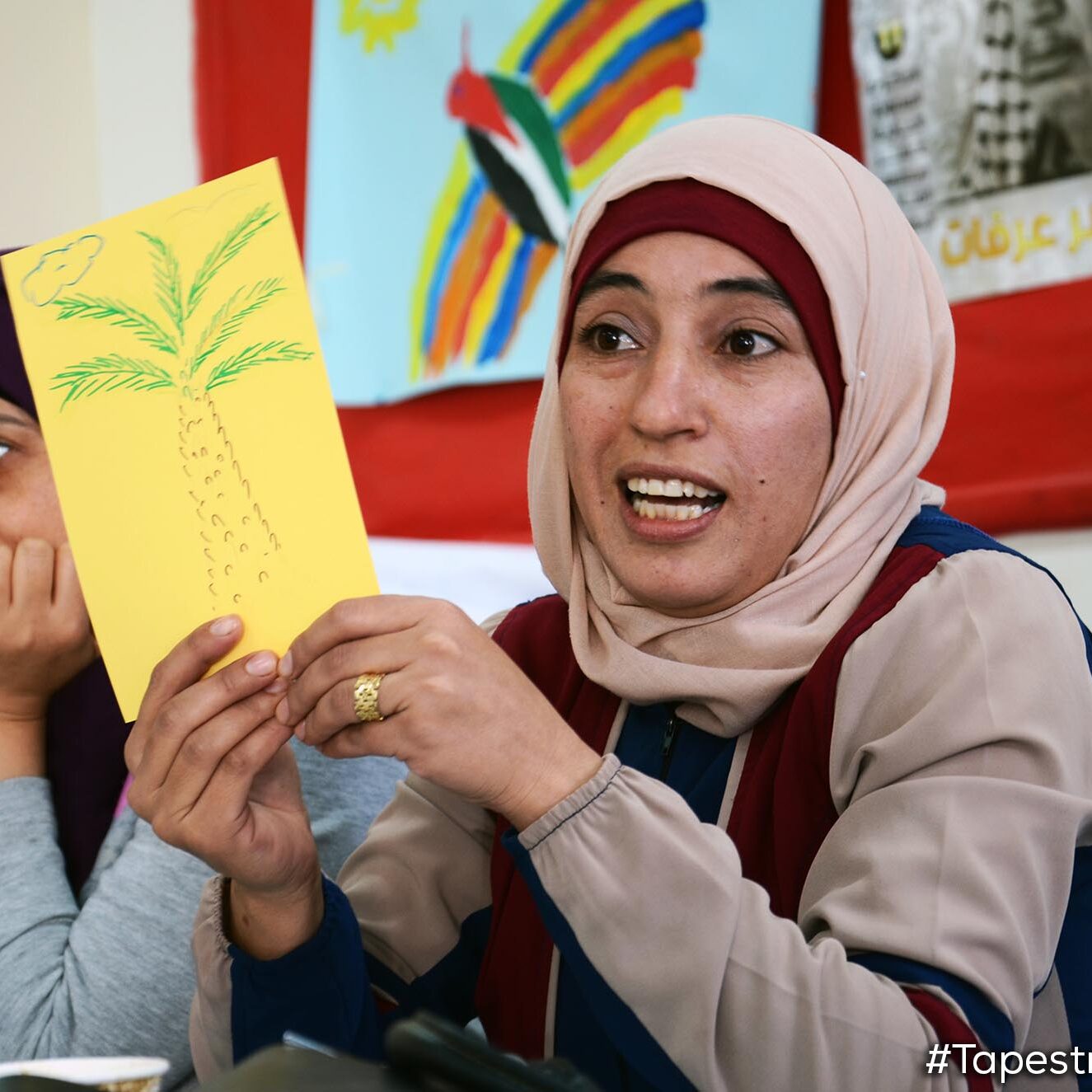

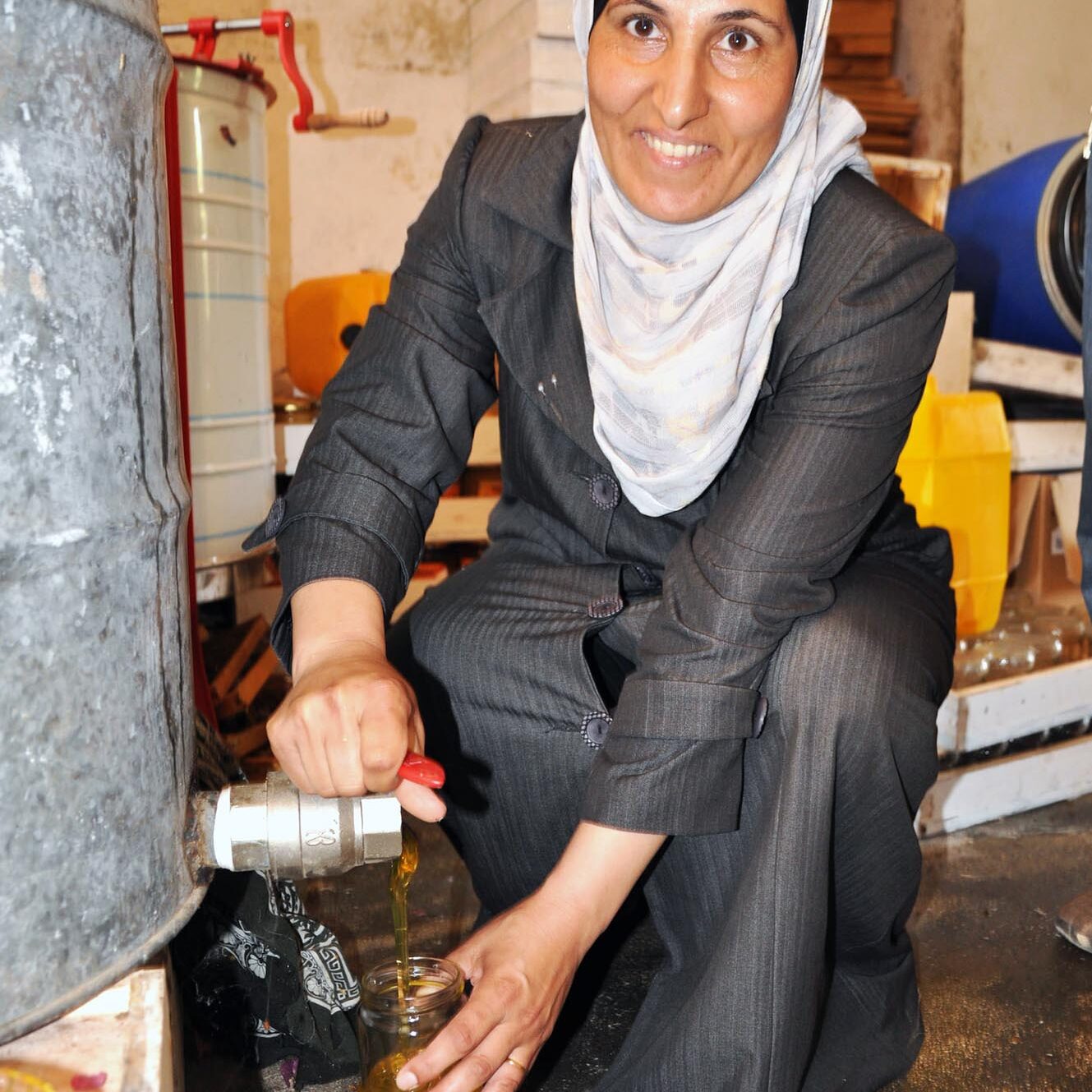

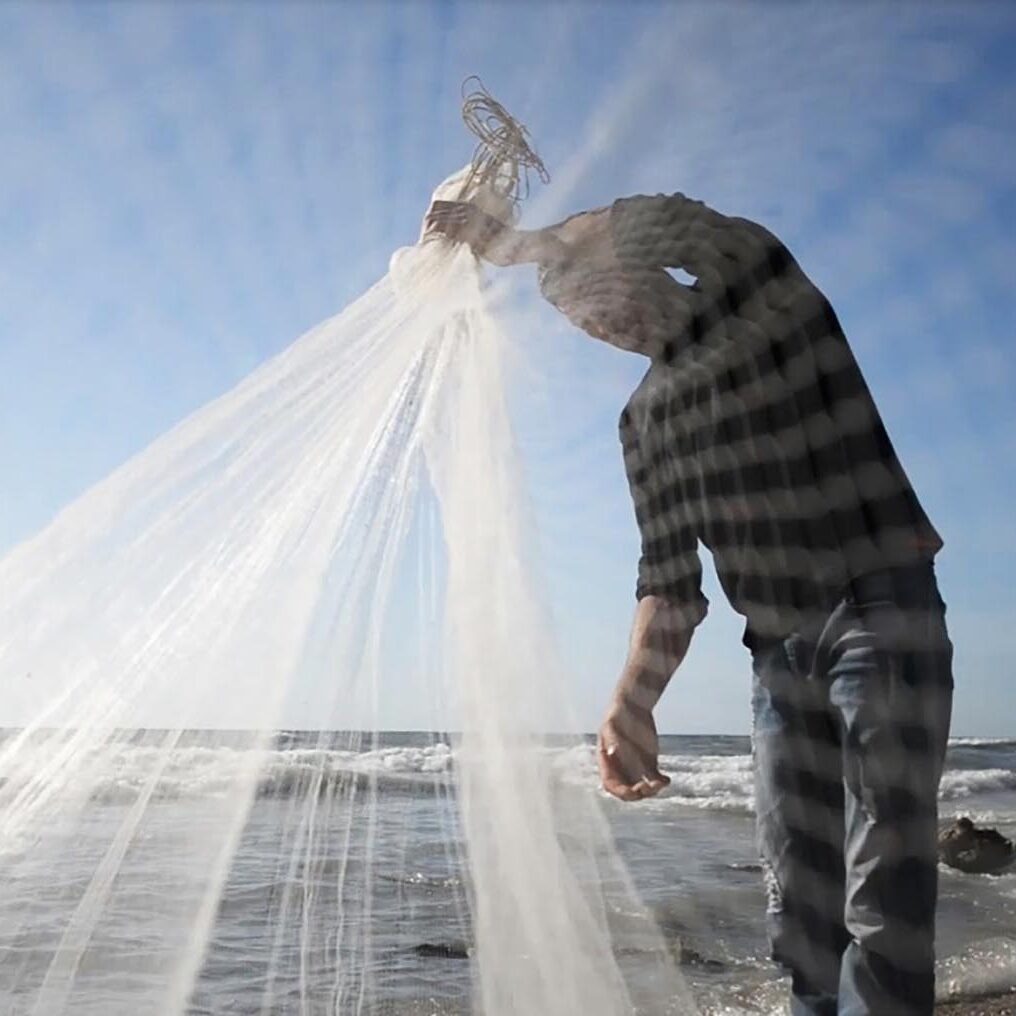

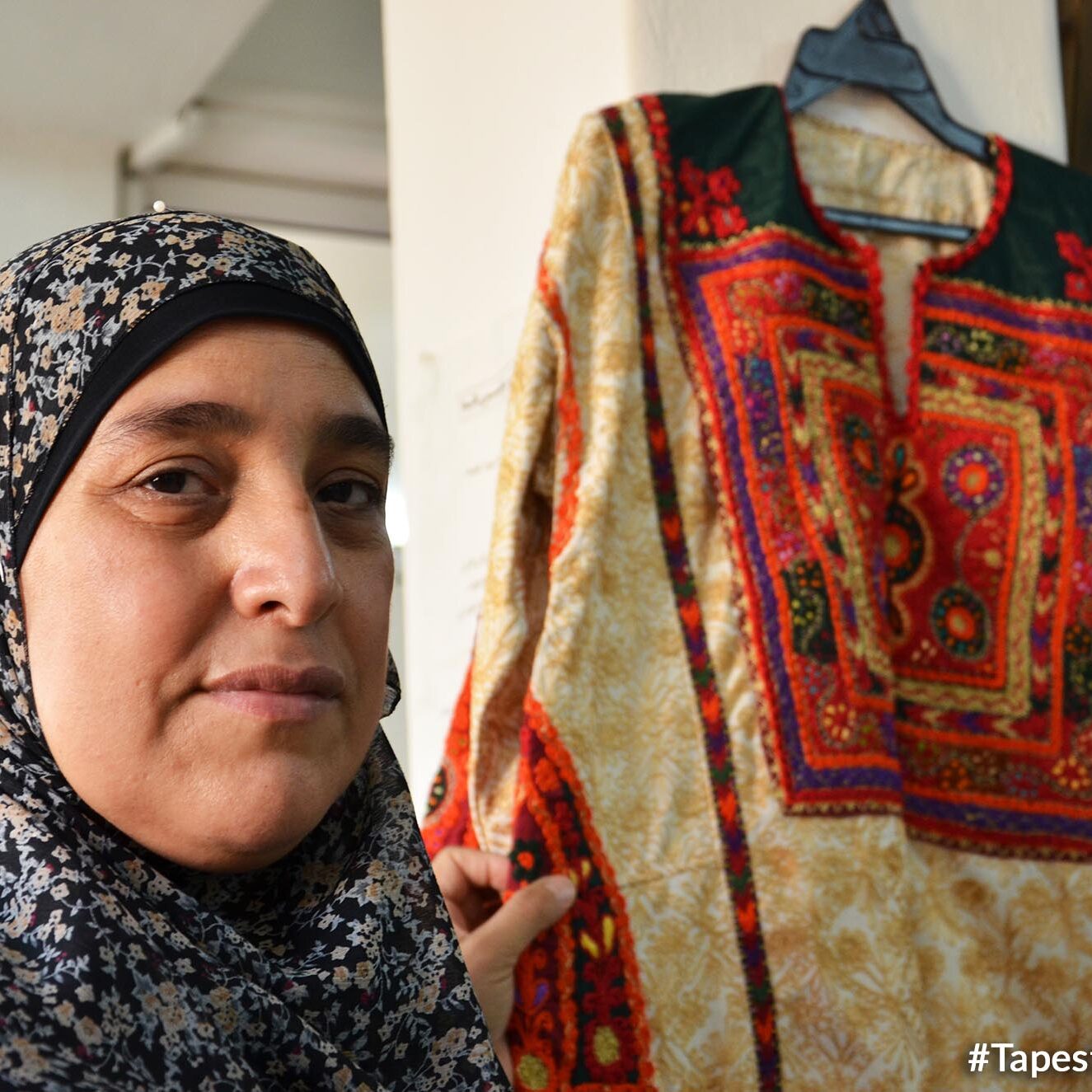

![TOH_WB_Thabet & Adel Thabet (left): "We work until we finish the day's produce of olives, even if it means working around the clock. Today we opened the press at five in the morning, and we'll see how things go. I expect it will be another late night."
Adel (right): "Olive oil is green gold and we need the continued support of local and international organizations to preserve it." - Thabet and Adel, olive farmers (Idhna, West Bank) [Photo: Brothers Thabet and Adel, standing in front of their olive oil processing facility in Idhna]](https://www.anera.org/wp-content/uploads/bb-plugin/cache/TOH_WB_Thabet-Adel-square-39700f8935e9b09ab63cb4acaa1e26bd-5bc0ec4c0a8d1.jpg)
![TOH_WB_Thabet & Adel Thabet (left): "We work until we finish the day's produce of olives, even if it means working around the clock. Today we opened the press at five in the morning, and we'll see how things go. I expect it will be another late night."
Adel (right): "Olive oil is green gold and we need the continued support of local and international organizations to preserve it." - Thabet and Adel, olive farmers (Idhna, West Bank) [Photo: Brothers Thabet and Adel, standing in front of their olive oil processing facility in Idhna]](https://www.anera.org/wp-content/uploads/bb-plugin/cache/TOH_WB_Thabet-Adel-square-39700f8935e9b09ab63cb4acaa1e26bd-5bc0ec4c0a8d1.jpg)
![TOH_Leb_Ahmad “My parents passed away when I was very young. So I've been working for as long as I can remember, and never really had a proper childhood. All my brothers and uncles work in the aluminum business. I’m the only one in the family who doesn’t. Instead I wanted to study car mechanics because it is something I have always loved. Life is really tough in the camp and many of us have to work day and night to survive. Although this is true, I’m very happy here [at the vocational center], and my instructor is friendly, helpful, and always doing his best to encourage us.” - Ahmad, Palestinian refugee studying car mechanics (Ein El Hilweh camp in Saida, south Lebanon)](https://www.anera.org/wp-content/uploads/bb-plugin/cache/TOH_Leb_Ahmad-square-4b72037e6df941fe537713209024b4f6-5ba50fce19678.jpg)
![TOH_Leb_Ahmad “My parents passed away when I was very young. So I've been working for as long as I can remember, and never really had a proper childhood. All my brothers and uncles work in the aluminum business. I’m the only one in the family who doesn’t. Instead I wanted to study car mechanics because it is something I have always loved. Life is really tough in the camp and many of us have to work day and night to survive. Although this is true, I’m very happy here [at the vocational center], and my instructor is friendly, helpful, and always doing his best to encourage us.” - Ahmad, Palestinian refugee studying car mechanics (Ein El Hilweh camp in Saida, south Lebanon)](https://www.anera.org/wp-content/uploads/bb-plugin/cache/TOH_Leb_Ahmad-square-4b72037e6df941fe537713209024b4f6-5ba50fce19678.jpg)
